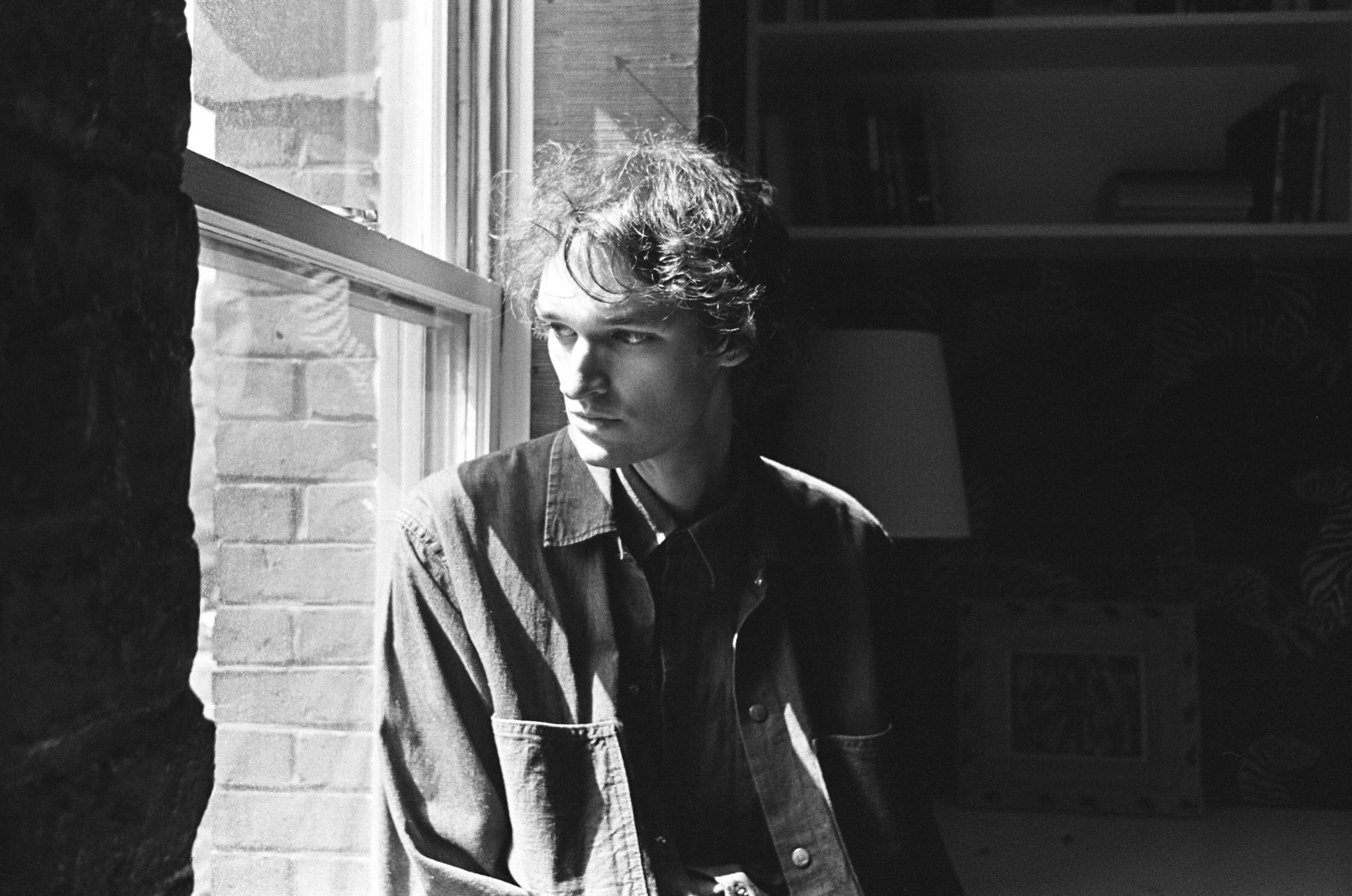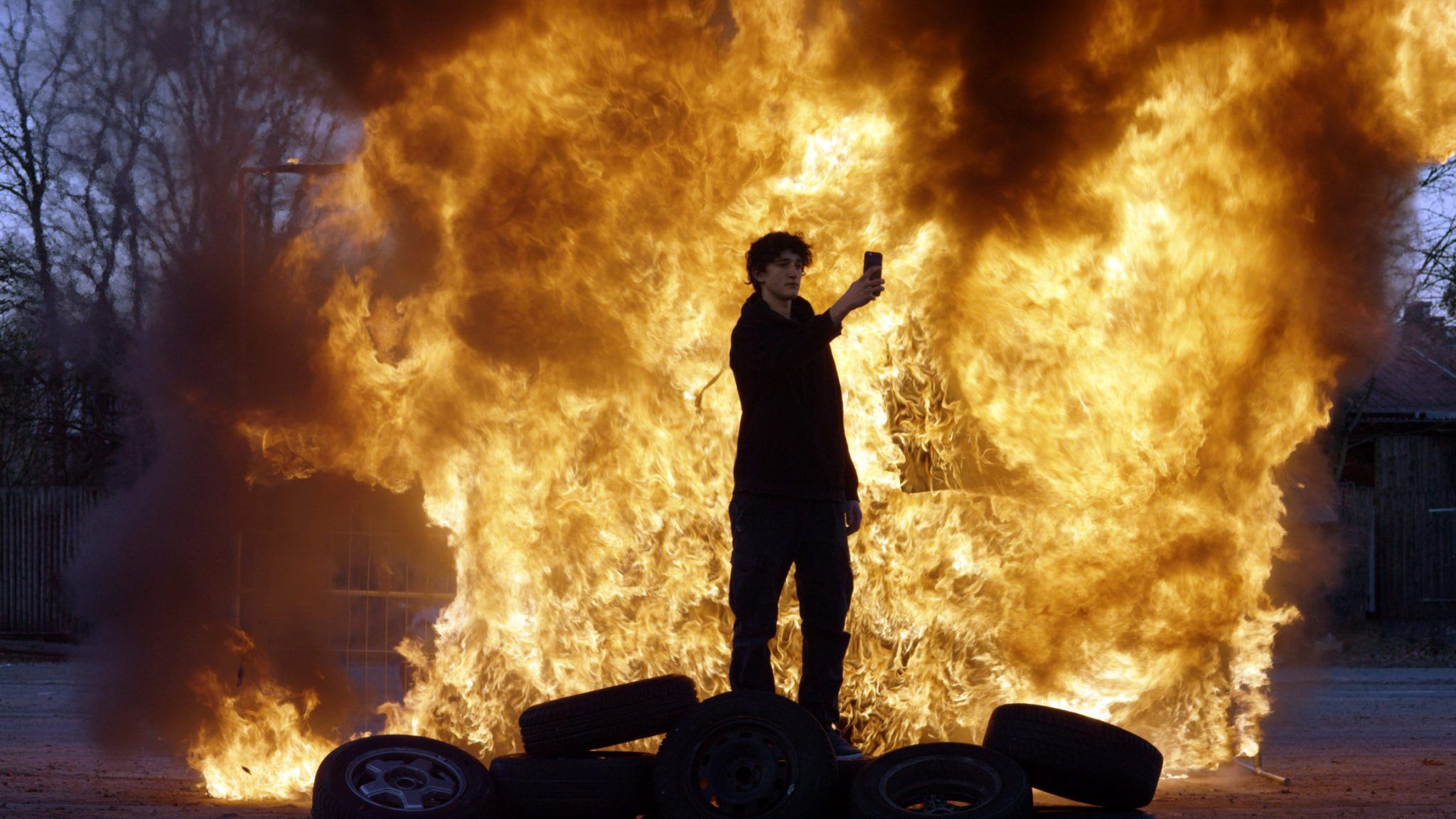BERGHAUS: Listen to ETAPP KYLE
|Irina Baconsky
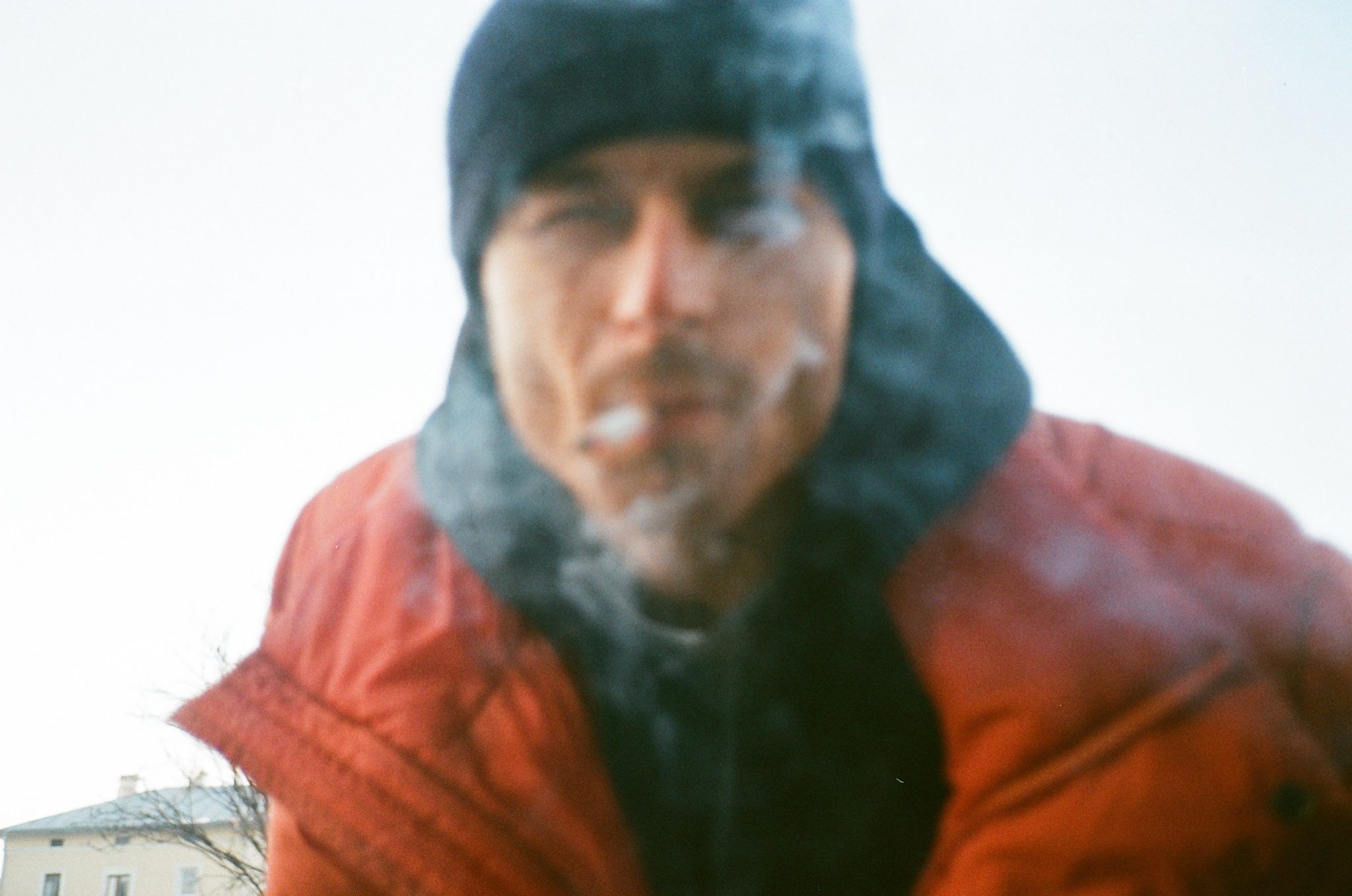
"The club is closed. So we spoke to the resident artist."
Etapp Kyle has relied on abstract methods of storytelling to create his experimental sound since his days as an emerging DJ in Ukraine. A Berghain resident since 2015, the performer born Sergii Kushnir has cemented himself as one of Eastern Europe’s techno authorities. The classical training to which he submitted as a youth still has traces in his music, and his sound is notable for reimagining rave and electro as architectural – rather than rhythmic – constructions.
Kushnir’s holistic, spatial impetus has instigated creative endeavors that exceed the club underworld. His most recent venture, Nolove, is an affective reflection on his native Bukovina – a region with fugitive borders, fraught with political turbulence and cultural effervescence alike. The project will take form as a four-track EP released on Ostgut Ton, a short film, and a forthcoming web exhibition centered around Western Ukraine’s energetic youth and artistic cultures, which have continued to thrive in the midst of territorial, linguistic, and religious tension. In light of Nolove's recent premiere, we asked Kushnir to revisit his teenage years in Chernavtsi, to illuminate his first encounters with techno, and delve into his cultural identity.
Irina Baconsky: You are known for your musical ventures, but what made you decide to explore video and visual arts? How and when did your interest in visual mediums emerge?
Etapp Kyle: Honestly, I can’t say when exactly it started coming to me, because sometimes I can hardly distinguish the arts. It’s often that in my eyes, one field compliments another. I remember in my teen years, there were those long, warm summer evenings I would get together with friends somewhere in our neighborhood—a place where we could secretly smoke cigarettes. We were smoking one after another and told each other different stories for many hours, non-stop. I had a reputation as a bit of a weird dreamer guy because most of my stories sounded odd to others, and had a taste of being made-up fantasies. And yes, often they were, but while telling them, in my mind I always had a complete picture and those stories would become quite real for me, without getting to materialize. Lately I started to notice it more often and thought it was something new, but now when you ask, I think I’ve always actually had this thing. I always treated my fantasies and dreams as if they were real in some sense. It’s because, as a rule, they come with quite clear visual accompaniment.
Only recently I started making notes and writing down some of those ideas. At some point one draft started growing in my notebook. I loved the way it played in my mind; I saw a complete picture again. And this time it came with an impulse to translate it from my inner screen onto a real one. But since I know nothing about cinematography, I didn’t even know where to start. Things changed around a year ago though. A friend from my hometown, who studies cinematography in Bucharest (Yanosh Buzhnitsa, the director of photography for Nolove), made great development within the last two years and now he also had some nice equipment. At some point I told him about my idea and he liked it a lot, so shortly after we started work.
In the beginning we were mostly discussing it trying to find the right time for the shoots. There were two things to consider: our schedules and snow. I think winter is a very important season in Slavic cultures, and Ukraine is no exception. Most of the biggest religious holidays are in the winter, and I just wanted to have that vibe in the video. Suddenly one of the tours I had scheduled for December got cancelled, and I had two weeks free. So I called Yanosh, booked a flight, and went to Ukraine. It was full of snow when I arrived in Chernivtsi and we started filming.
Is this the first time that you engage creatively with your cultural identity? Or would you say it permeates your work as an electronic musician?
In a direct way, yes, it’s the first time. But I think it always had a big reflection on my music. When I was little, my family lived in East Germany as my father was in the military. We spent three years there and returned to Ukraine after the Wall came down. At some point it was really hard to travel abroad with a Ukrainian passport and I don’t think my family could afford it. I never left the country for the next 15 years or so until my first international show in 2012. Moreover, I almost never left the Chernivtsi region. No doubt it will always be one of the greatest parts of my artistic identity, reflecting on everything I do one way or another.
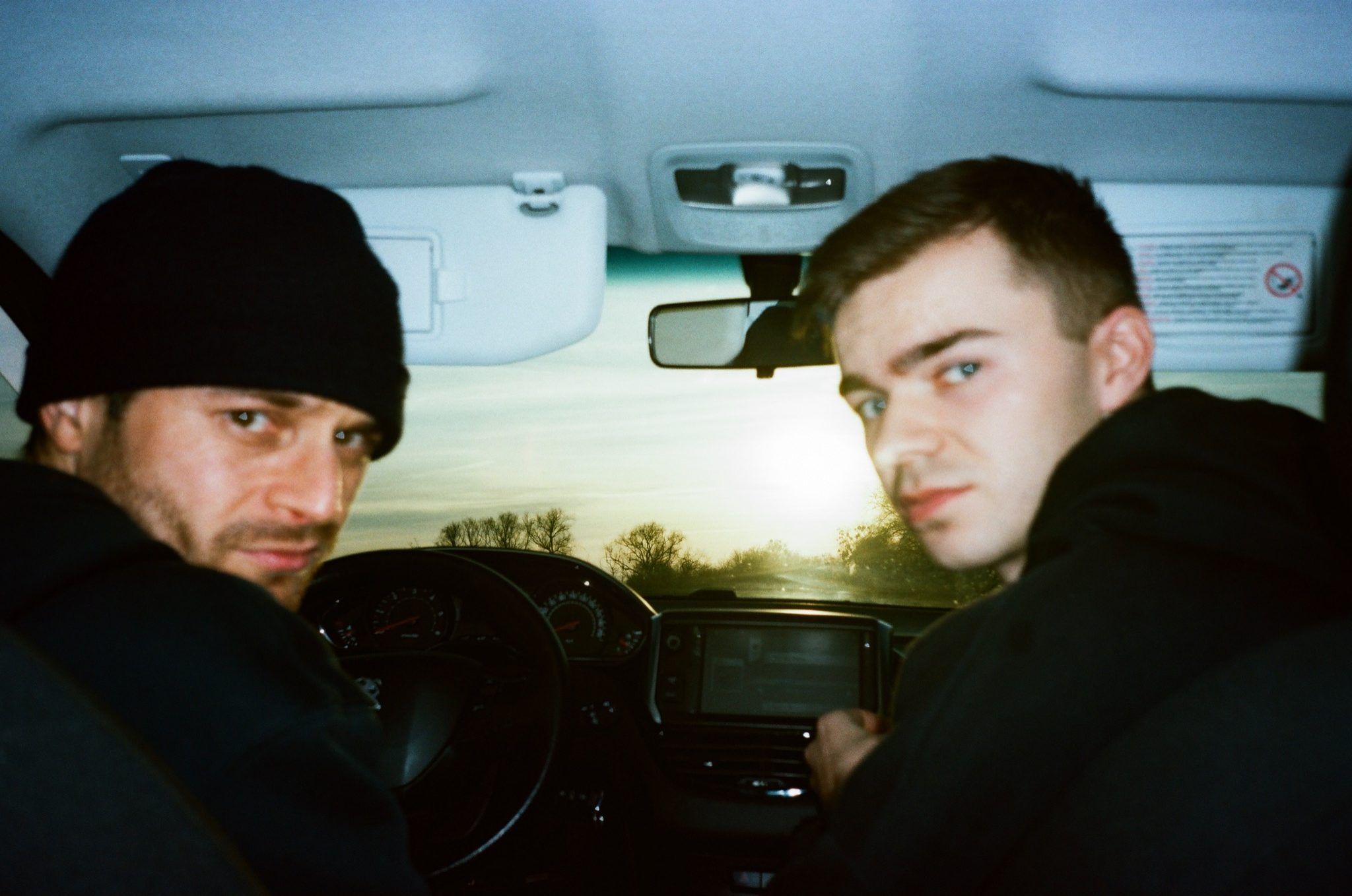
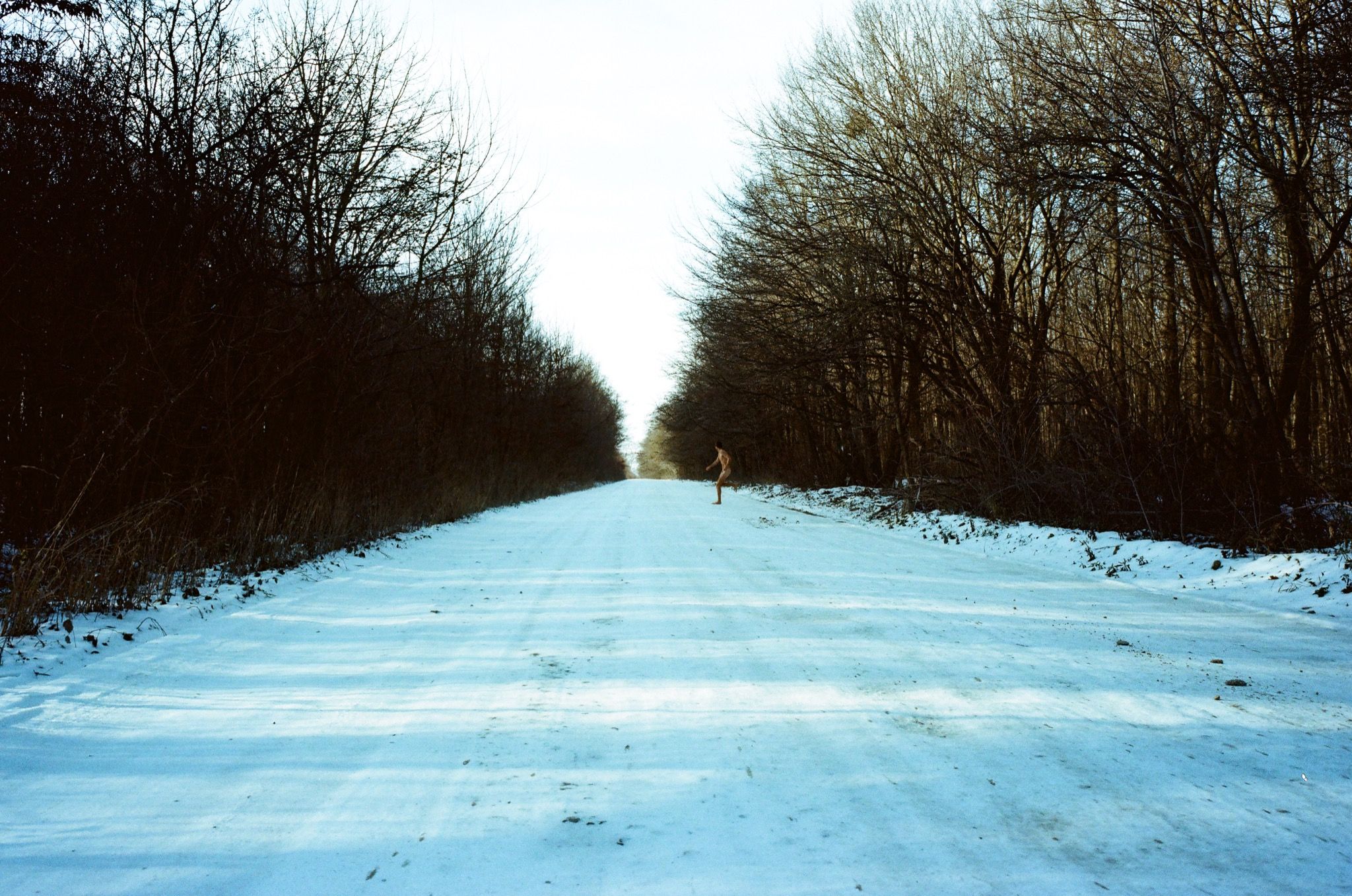
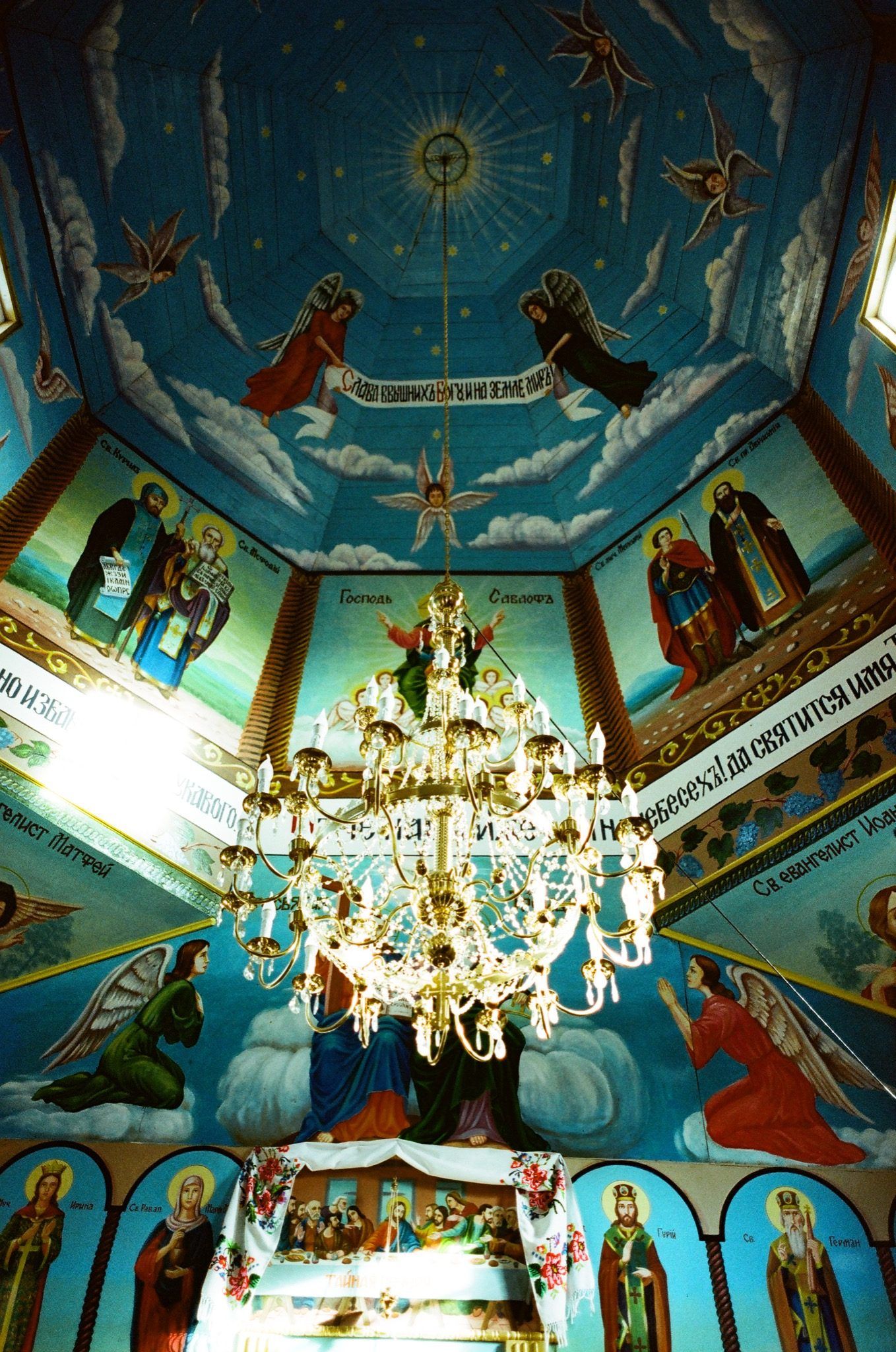
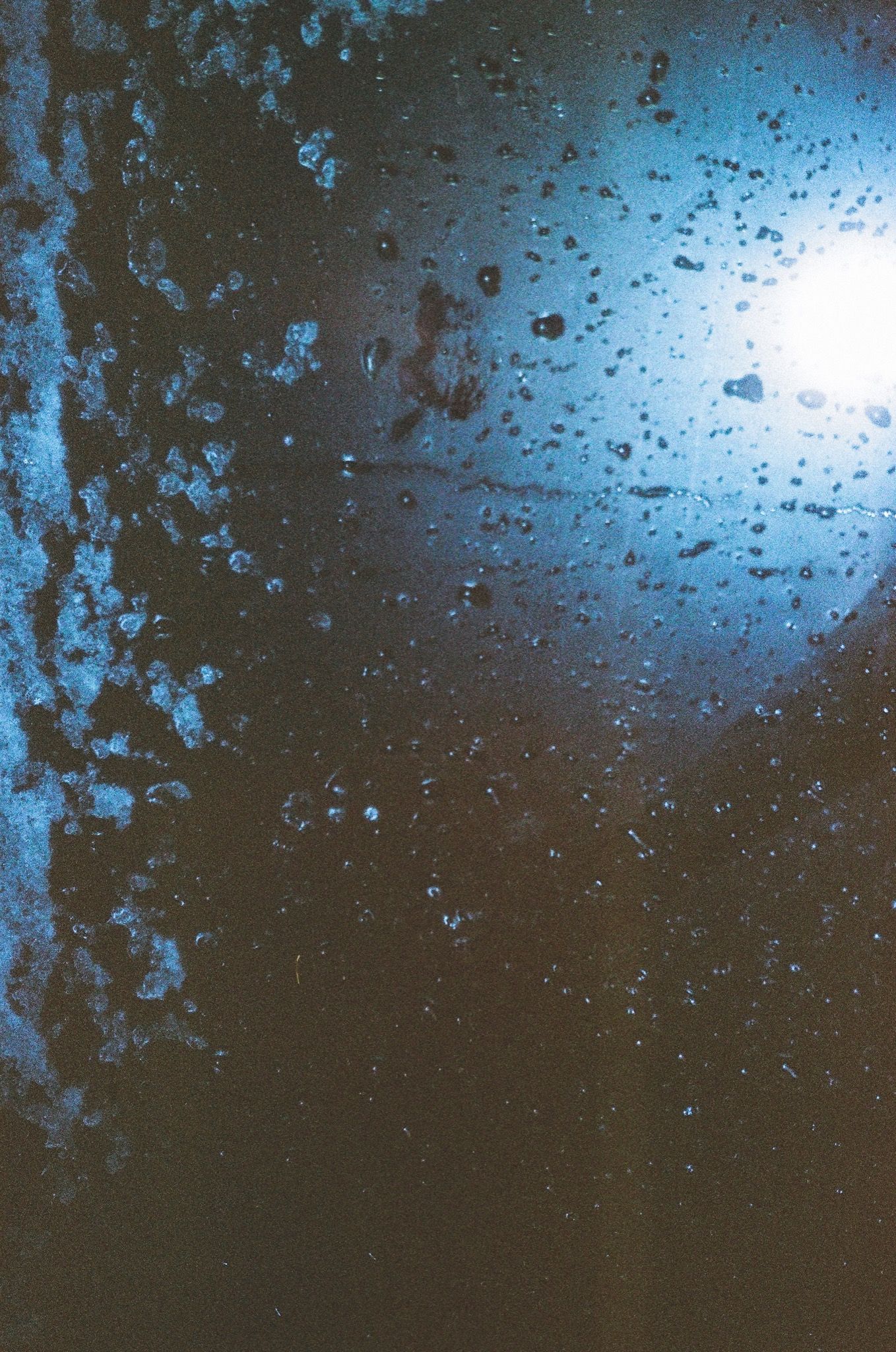
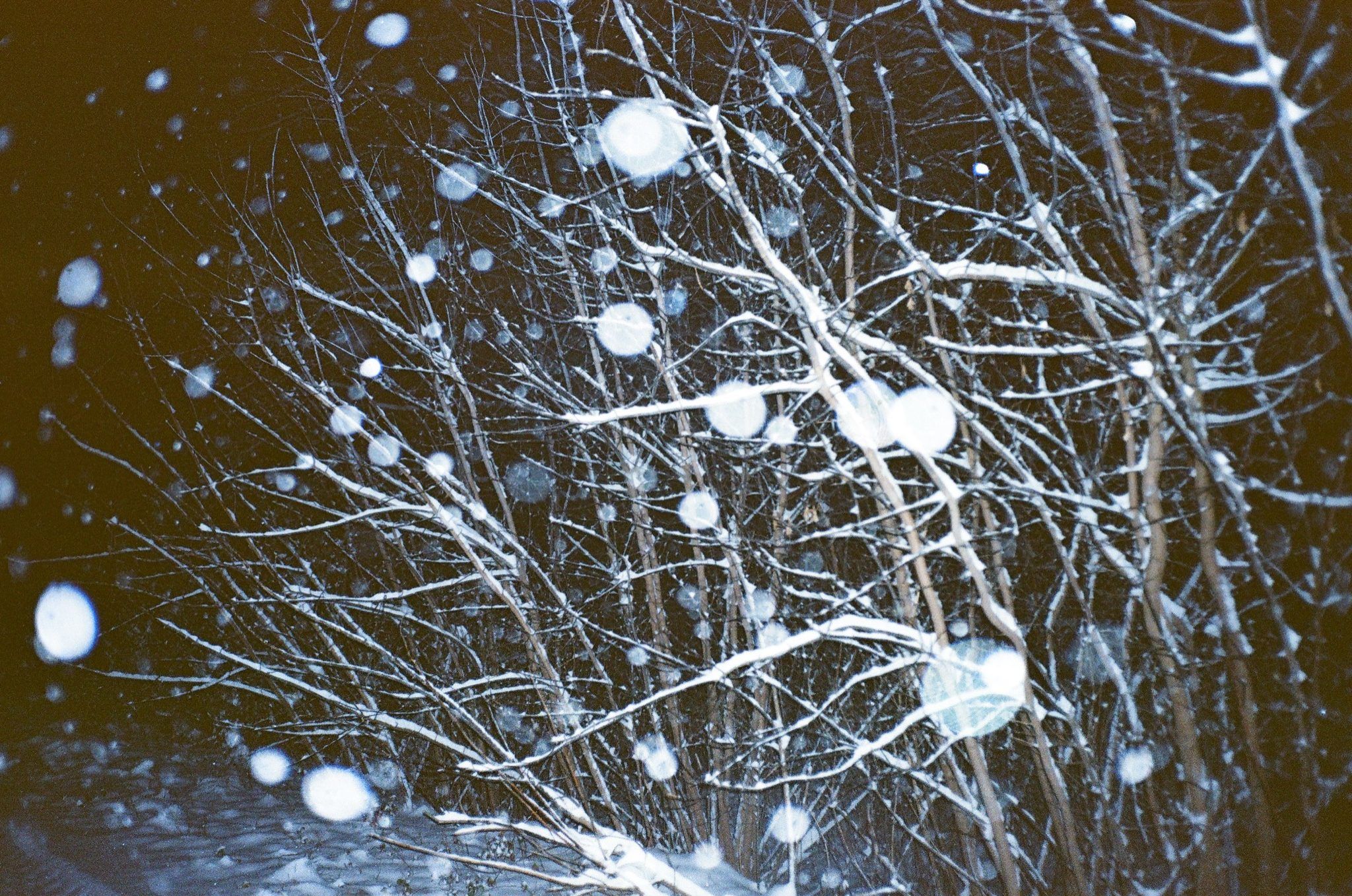
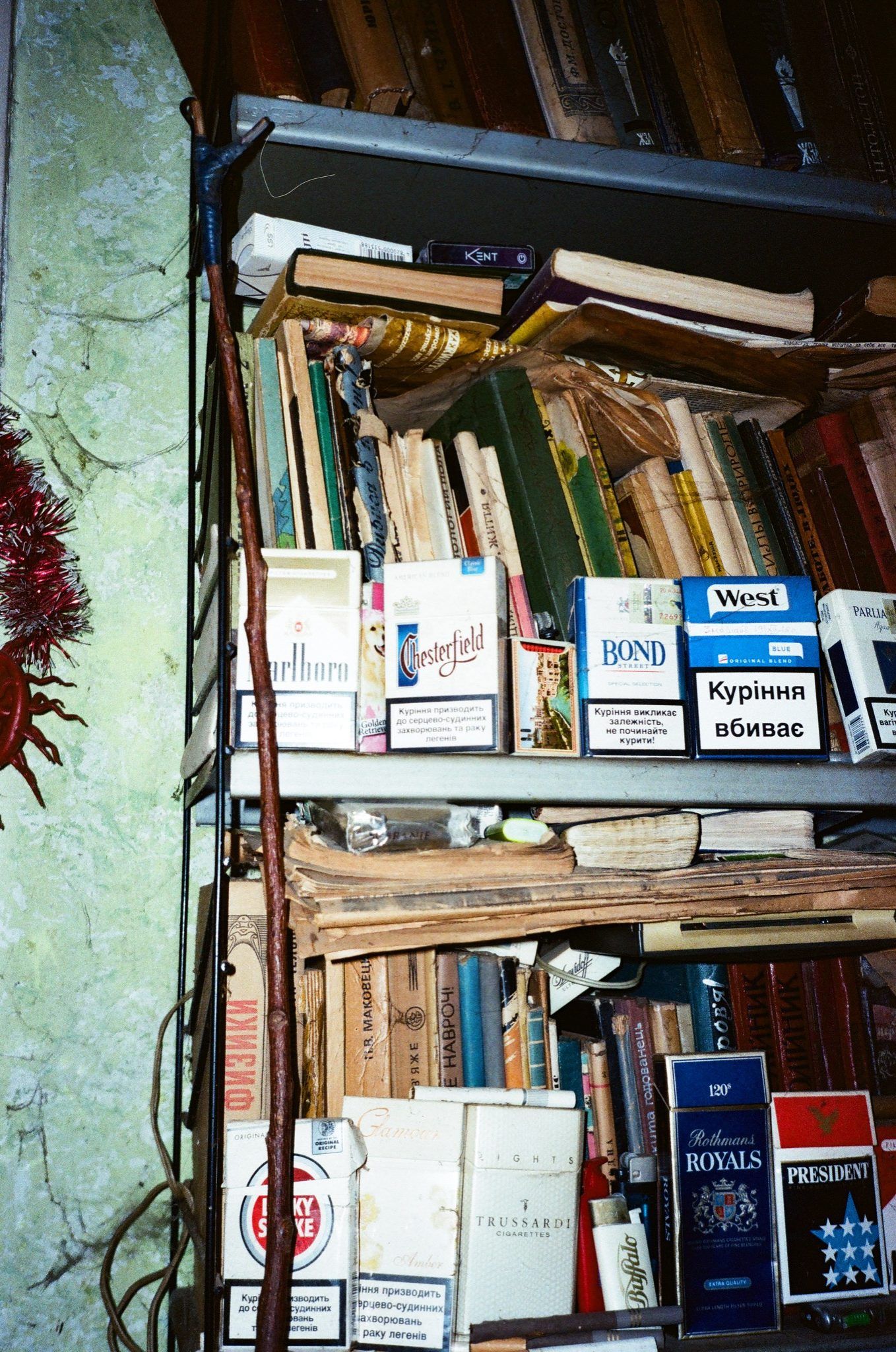
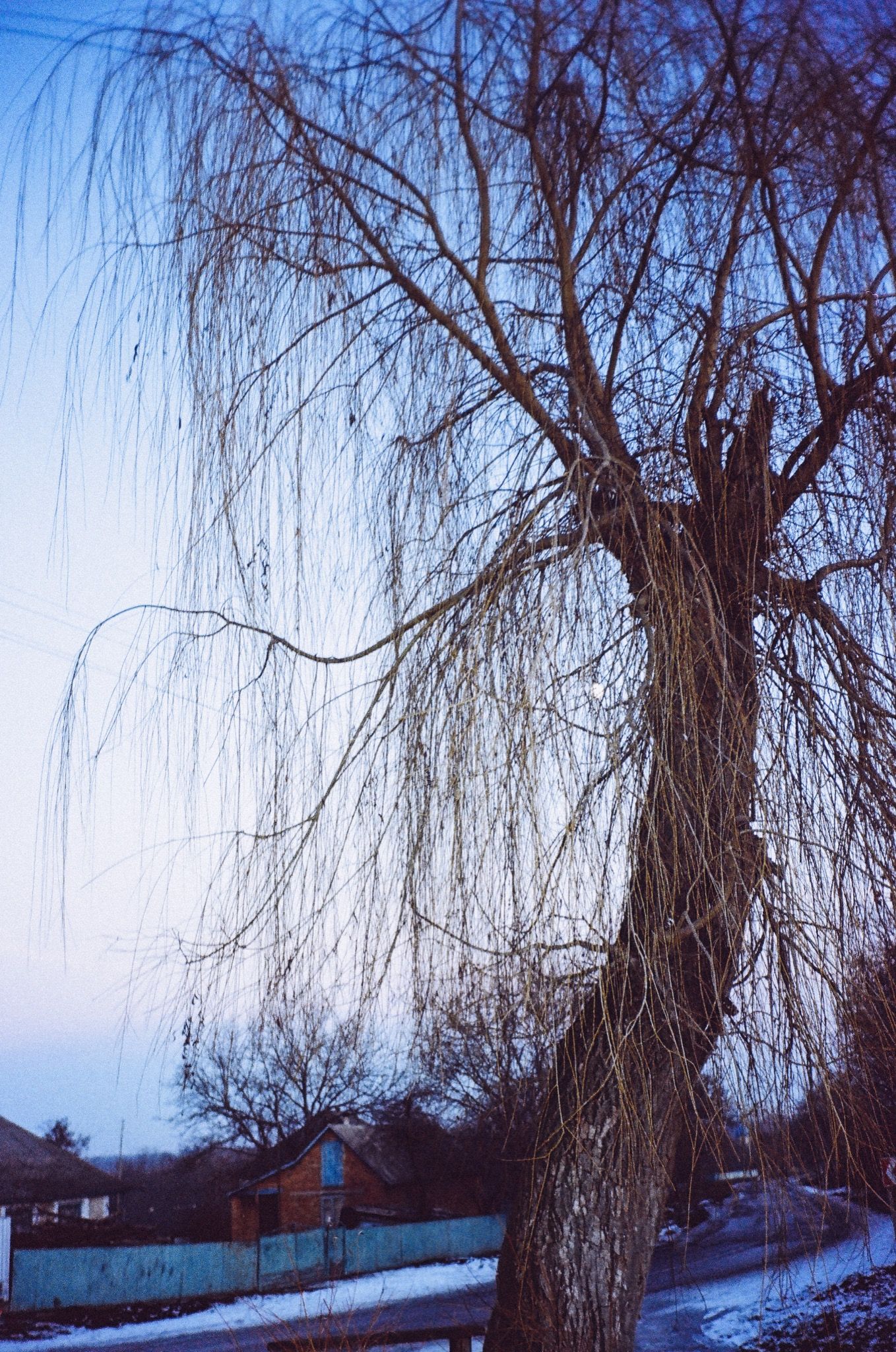
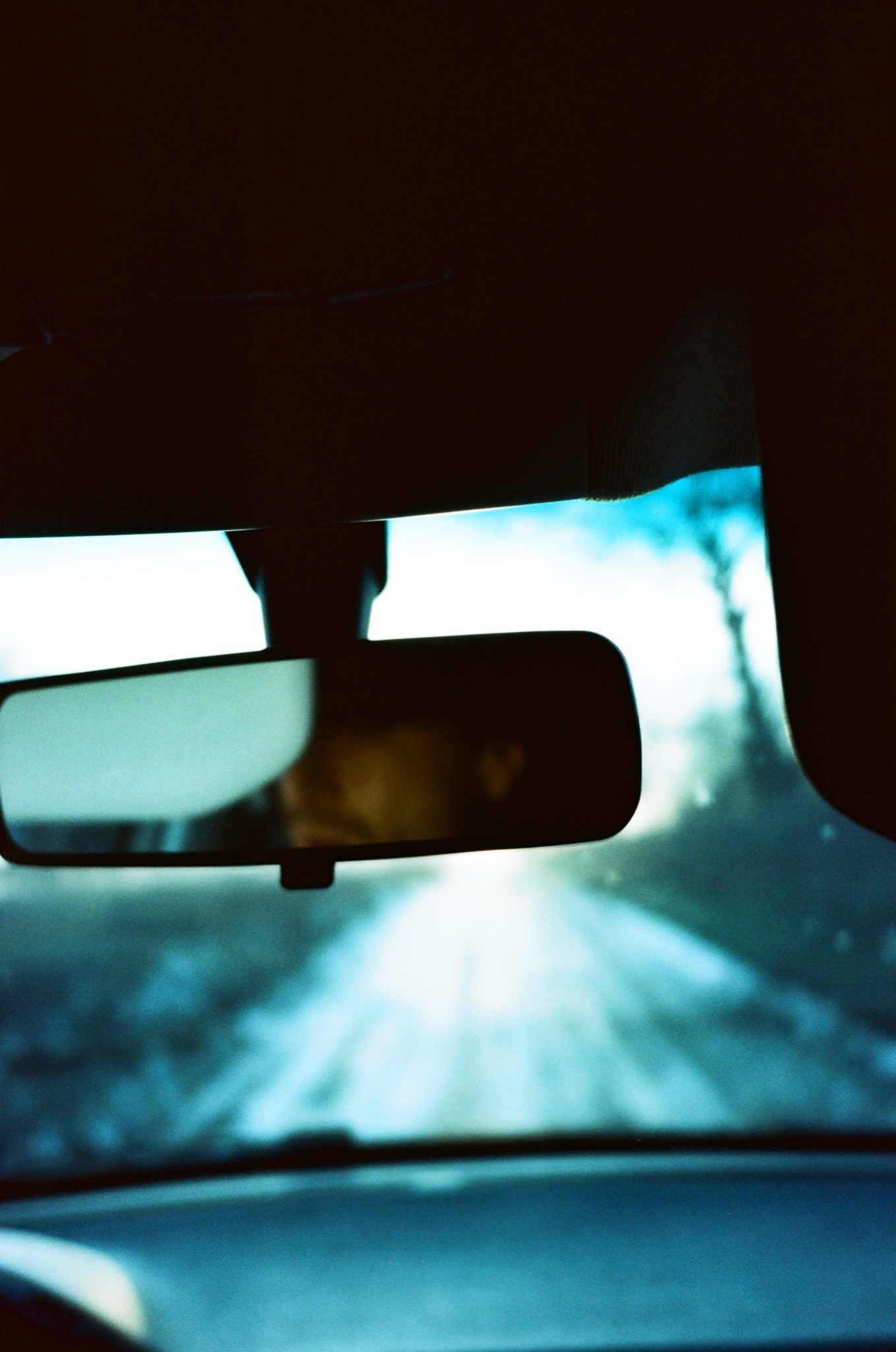
Your musical style in general is quite esoteric, at times experimental. You say that your interest in electronic music was ignited in Ukraine—how did the cultural context shape your sound?
Yes, the first contact was definitely in Ukraine. But, before it happened around 2003, I actually didn’t know about electronic music. I was living with my grandparents in the village, 70 km away from Chernivtsi city, and the only source of information was a broken TV with two national channels. Most of the music I heard was Ukrainian and Russian pop, local folk, and sometimes classical music in the music school I went to. I guess classical music was the best thing I could approach at that moment but I was around eight and interested in other things. I never thought how big the reflection of that isolation was, but apparently it couldn’t dissolve without leaving a trace in my sound. I remember when I heard electronic music for the first time, though. It’s hard to estimate the impact it had. It was a click that changed everything.
“Esoteric,” as you say, is a relatively recent thing. I can’t say for sure how much this part is connected to where I’m coming from. I started getting into deep sound when I ran into those first Ostgut Ton records for the first time. At that point I already had affordable internet connection and would spend days digging for music online, so this is something I borrowed more from outside sources I guess. But before, most of the stuff was coming from audio CDs, sometimes I would get rips from my friends who were also into “кислота” (this is the way we intuitively called that music, translates as “acid”). That time is responsible for the experimental side of my sound.
You come from a region, Bukovina, which is very particular in terms of its division (linguistic, territorial, political). How palpable were these fractures when you were growing up? How did they contribute to your creative identity?
As I mentioned, most of my childhood I spent in the village with my grandparents—the vibe there was quite chill. Sometimes even big political shakes in Ukraine had almost no backwash on the local life. I had other struggles, though. There was a false belief that I was born in Germany because I had lived there before with my family and, because of that, I often was not accepted among other kids in school and outside of it. Not that it bothered me a lot but I think it started shaping my need to self-express.
Later I moved to the city and the fractures you are asking about were more noticeable there. Some of those things often would participate in creating some emptiness and seeking for a better life. This was probably the main force to realize myself in music and arts.
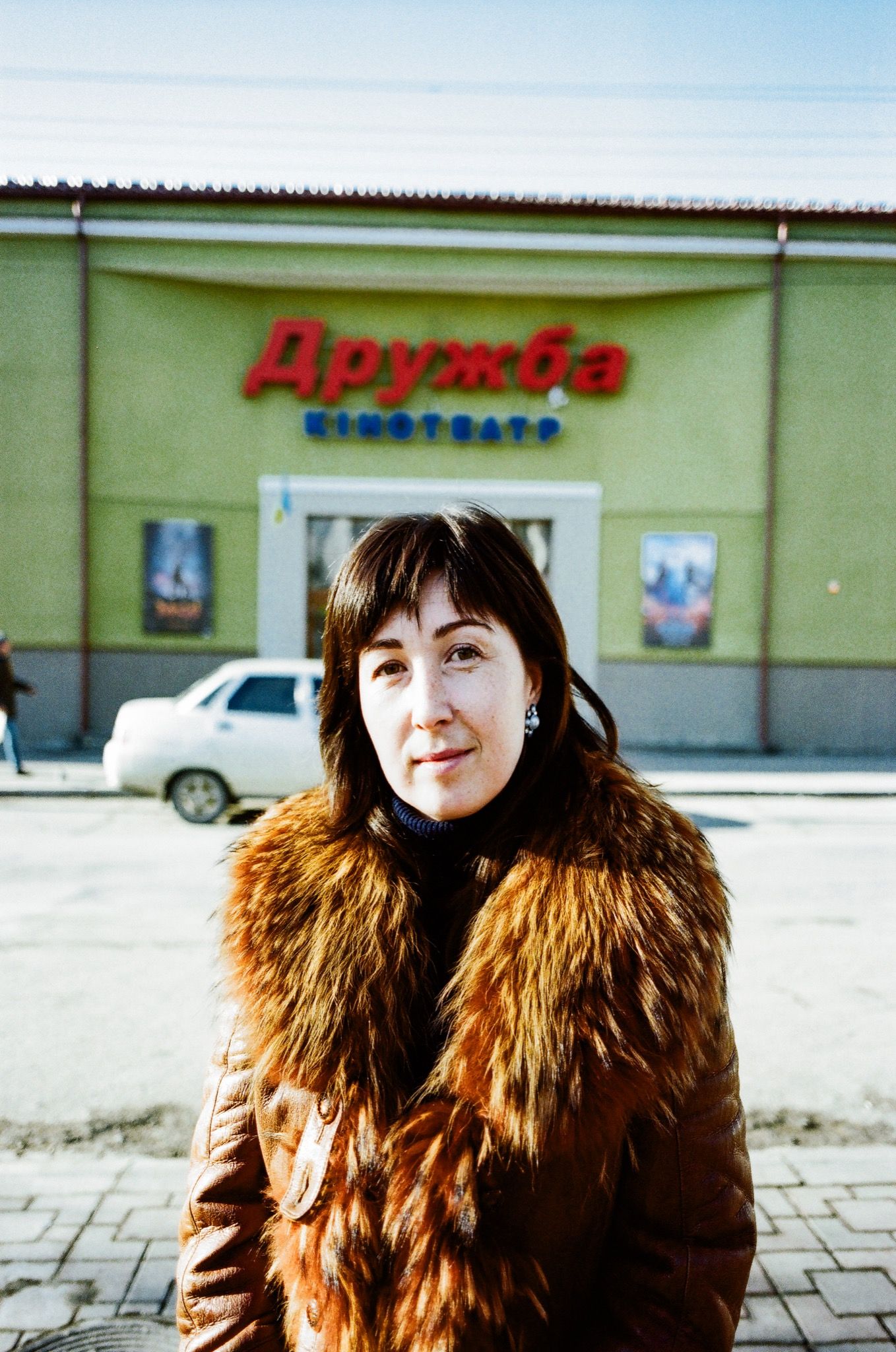
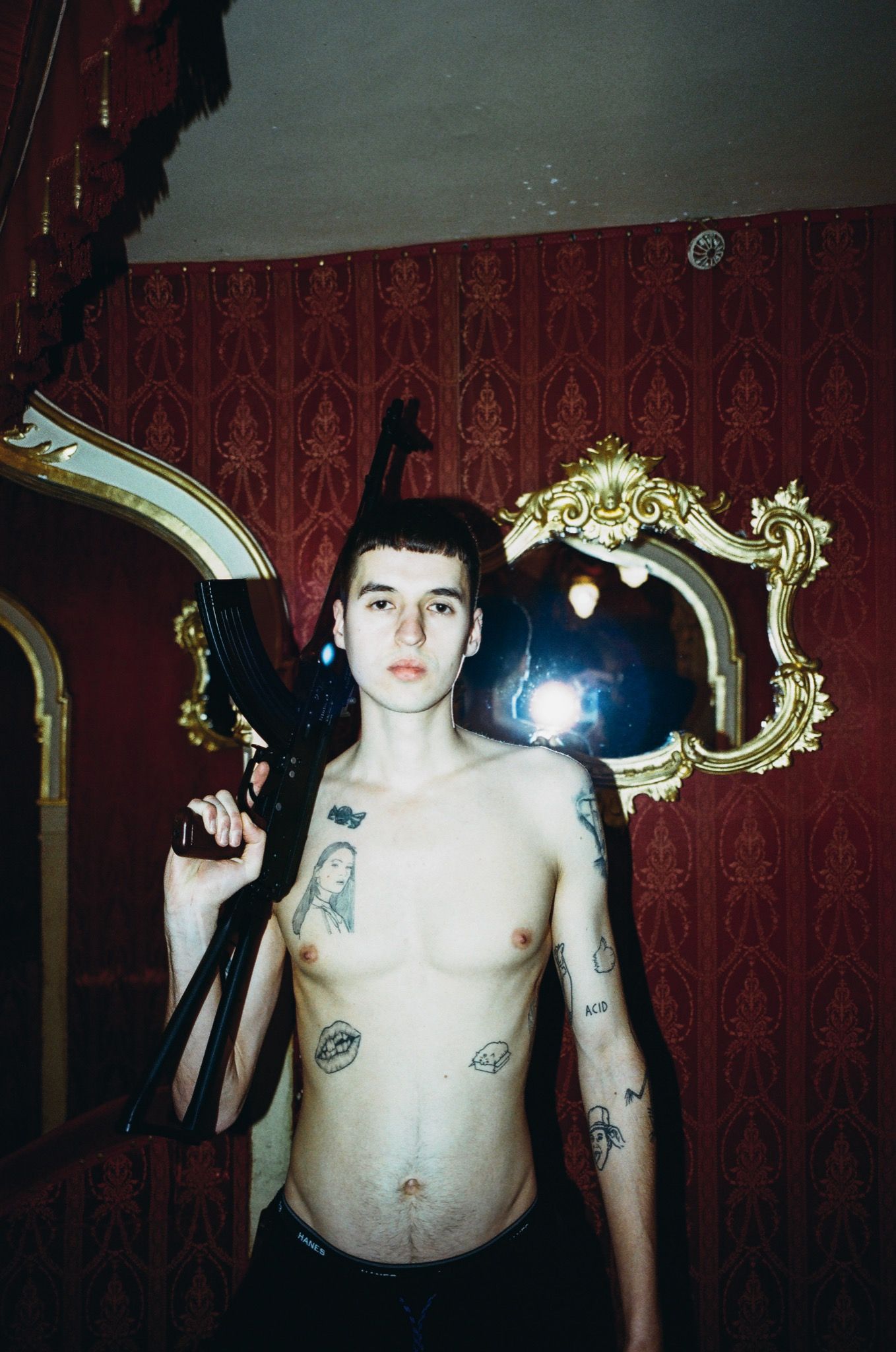
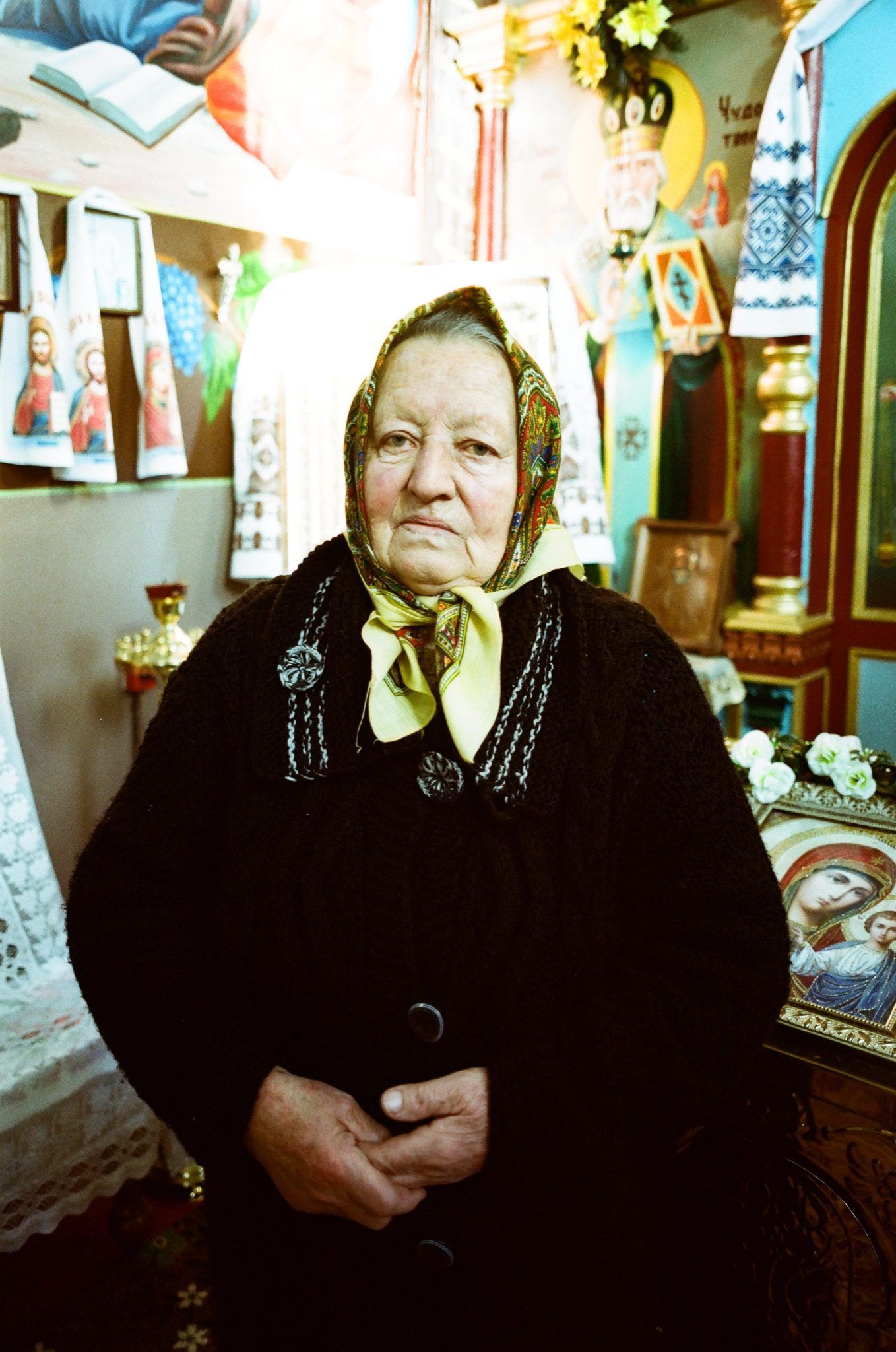
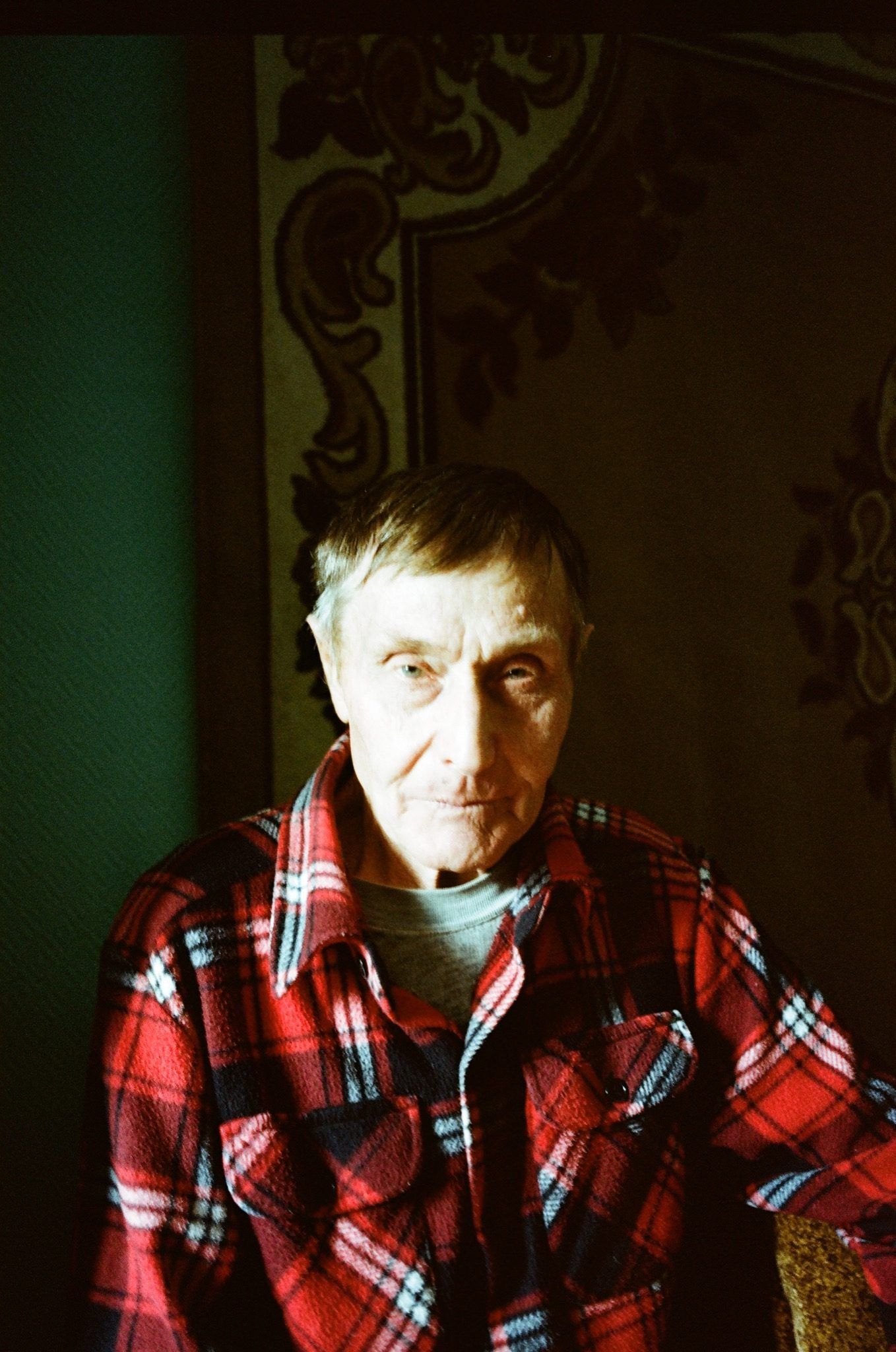
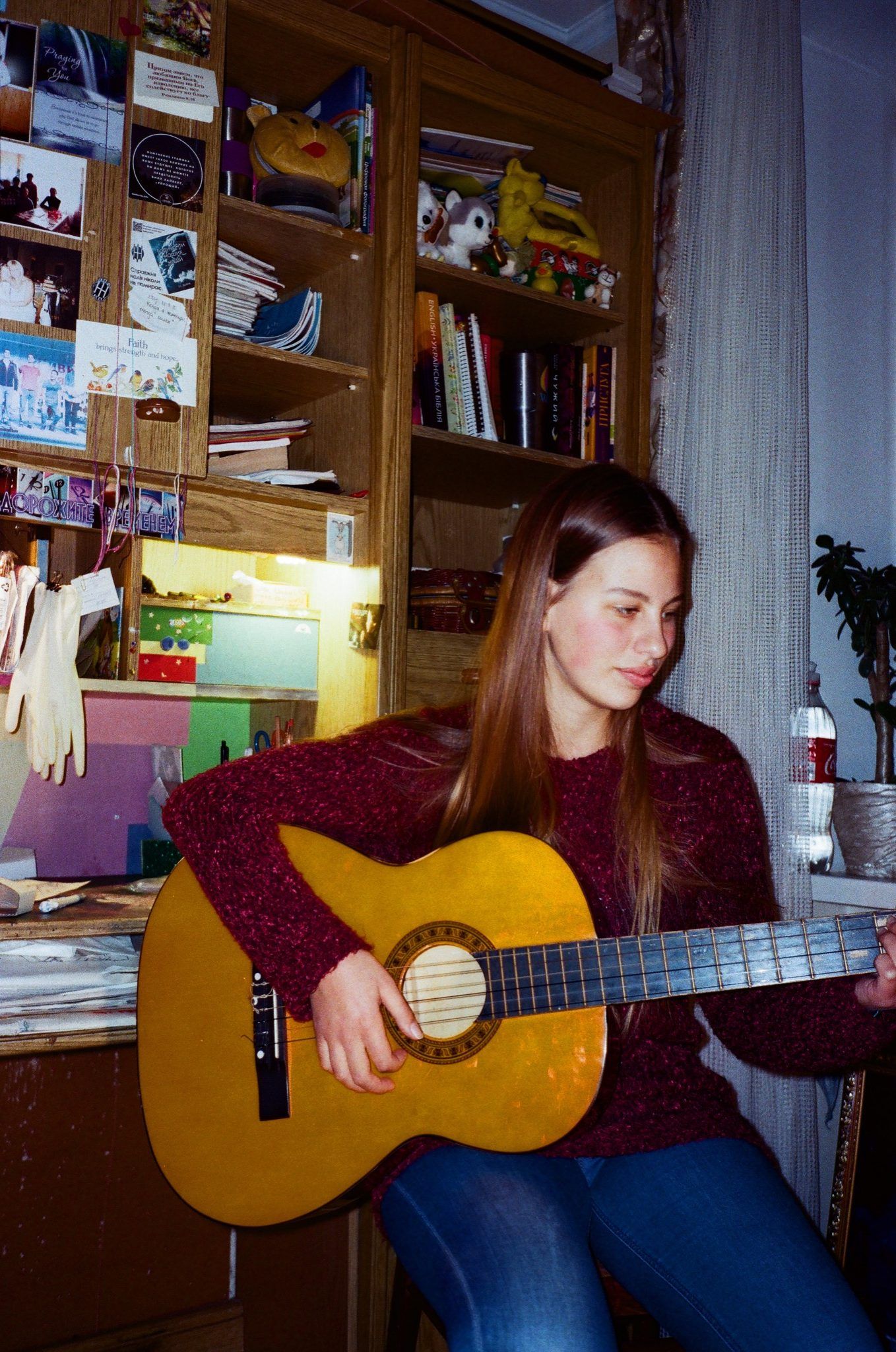
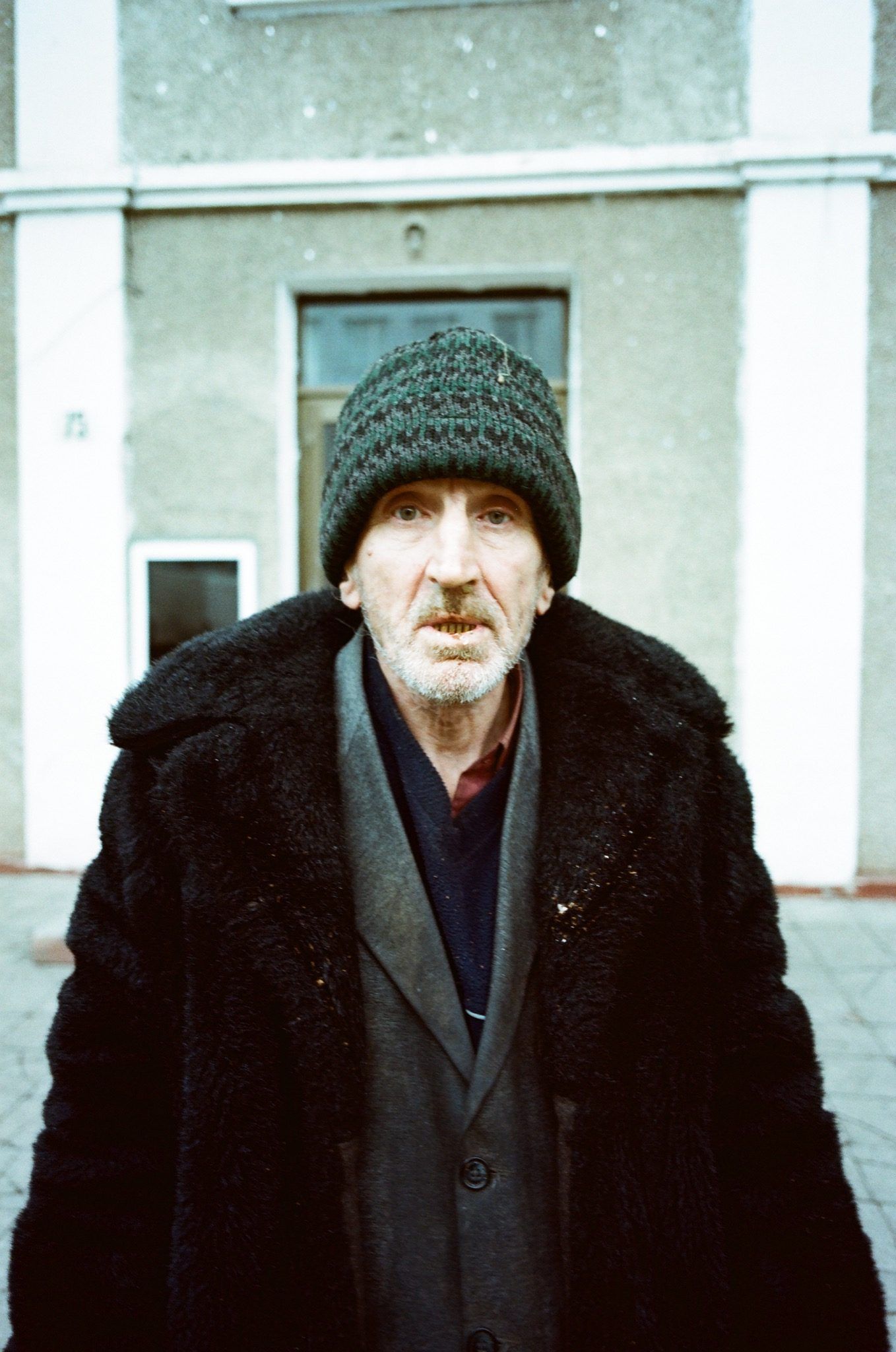
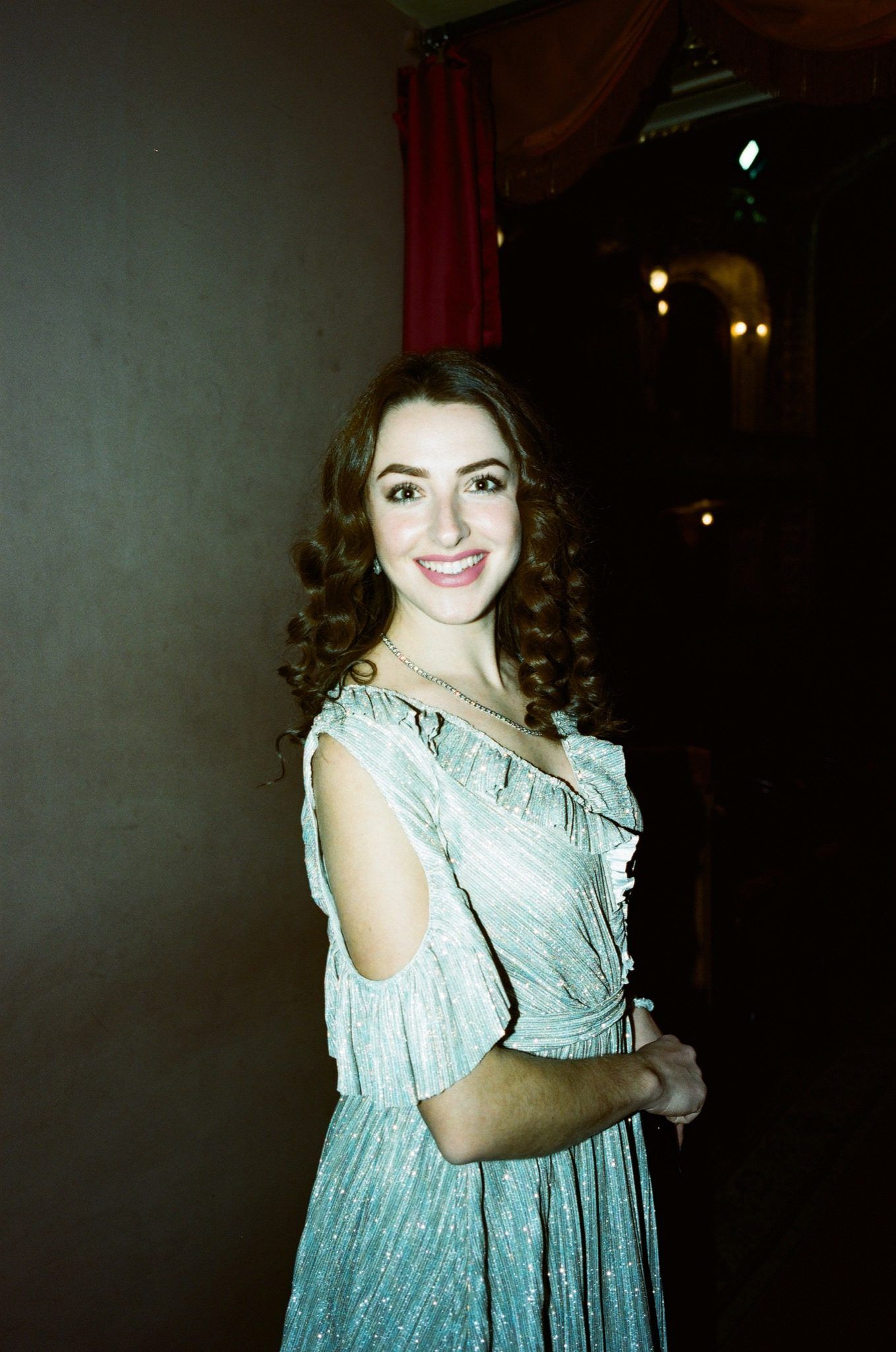
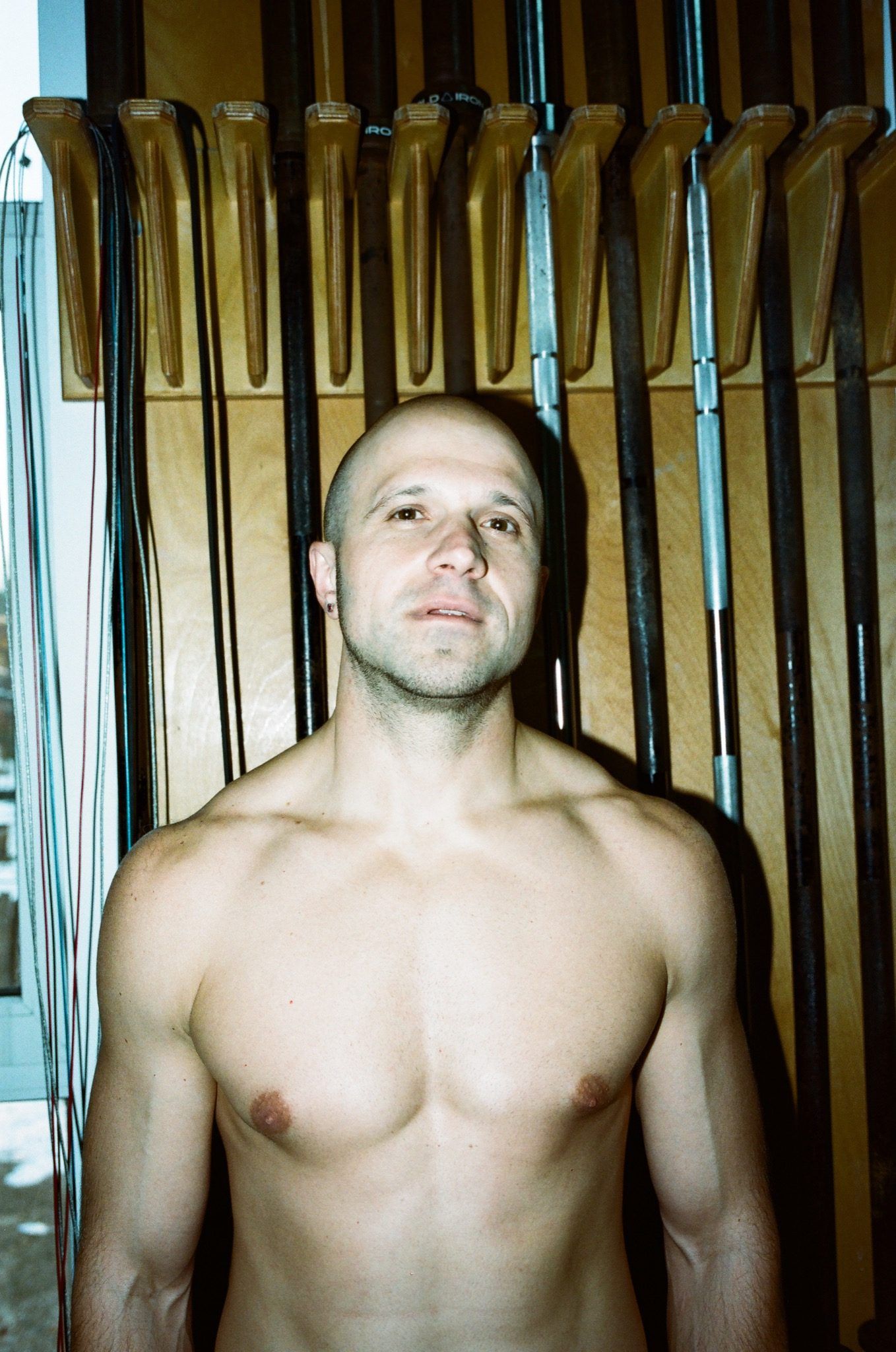
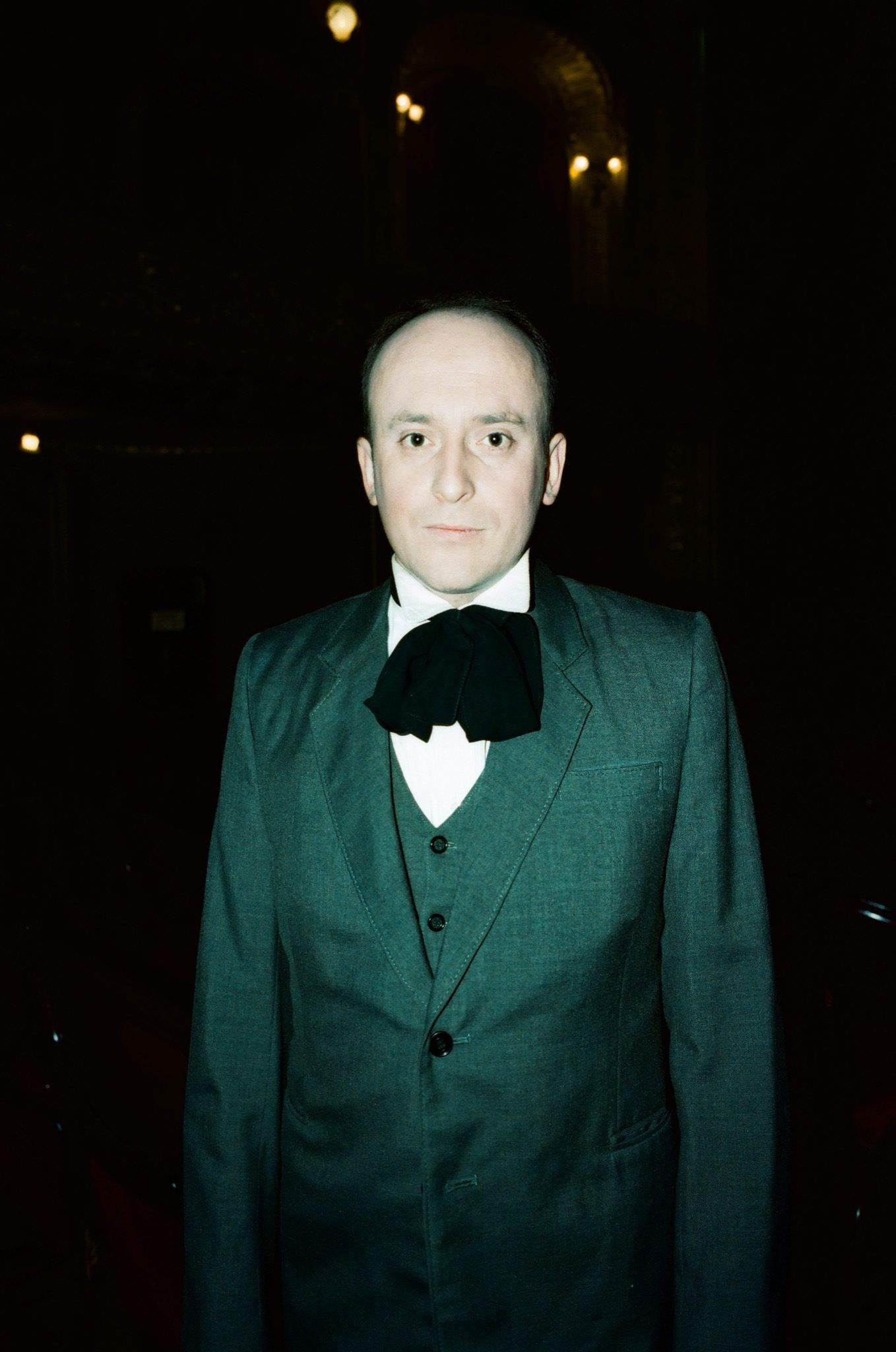
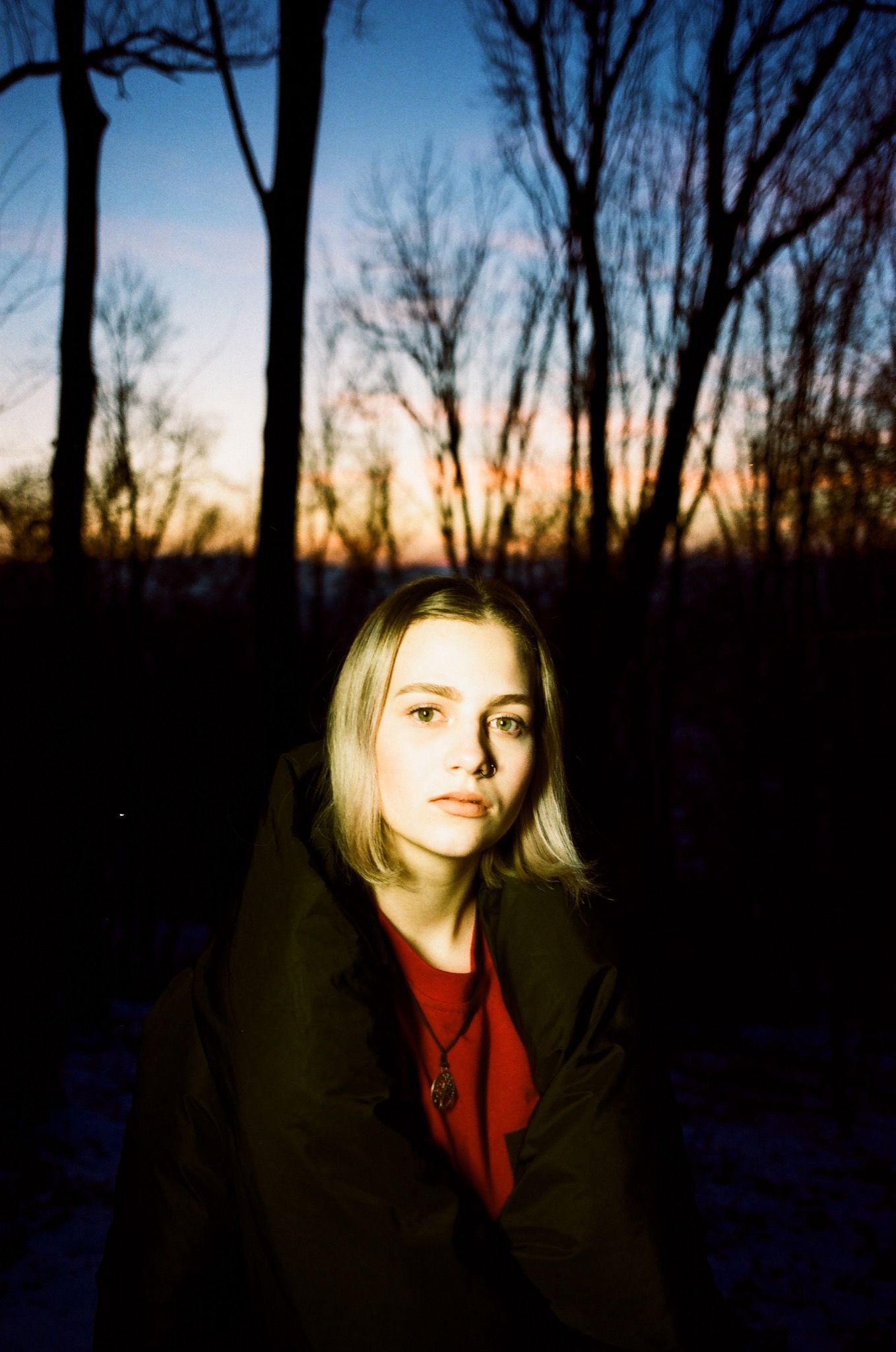
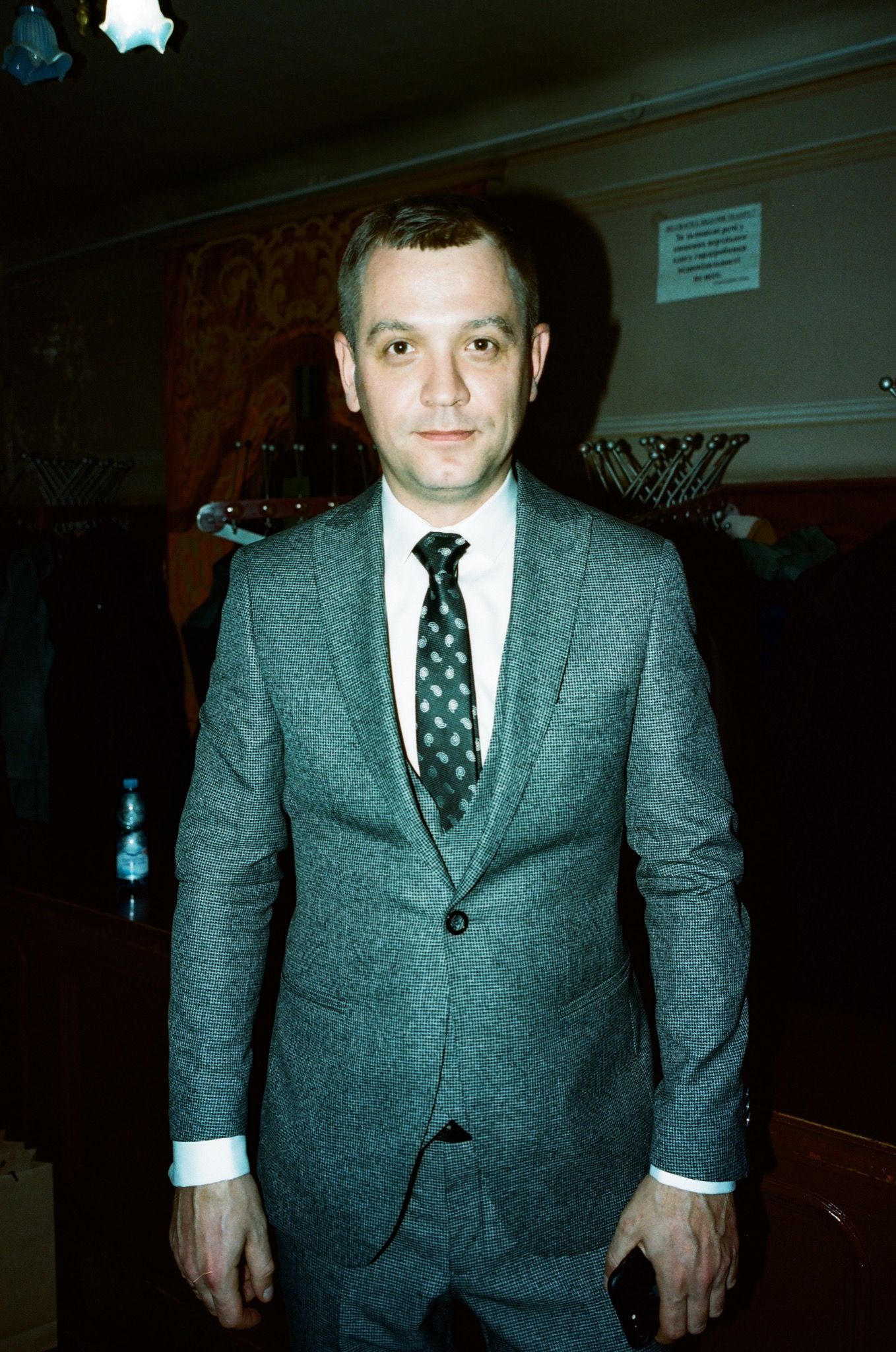
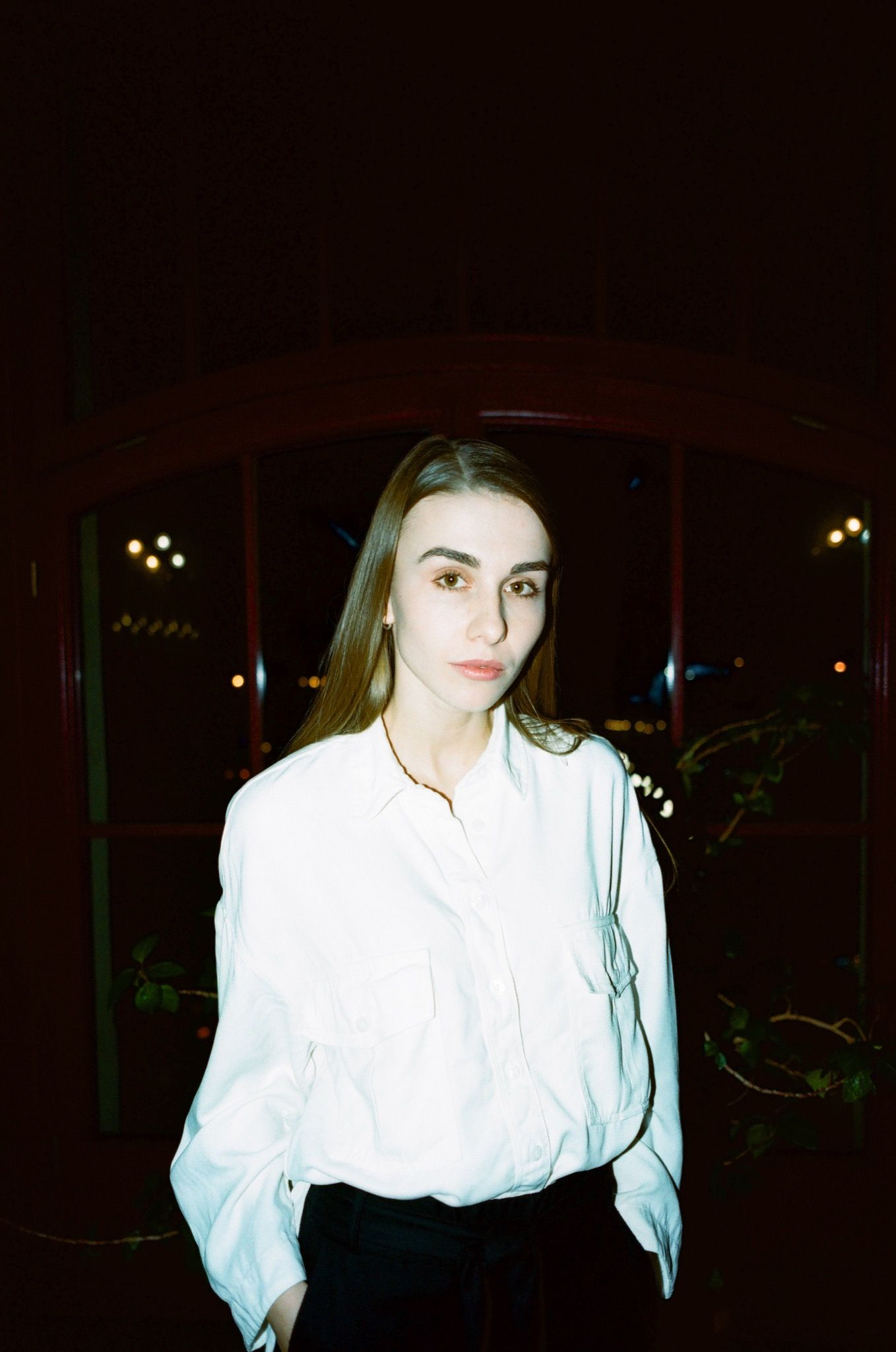
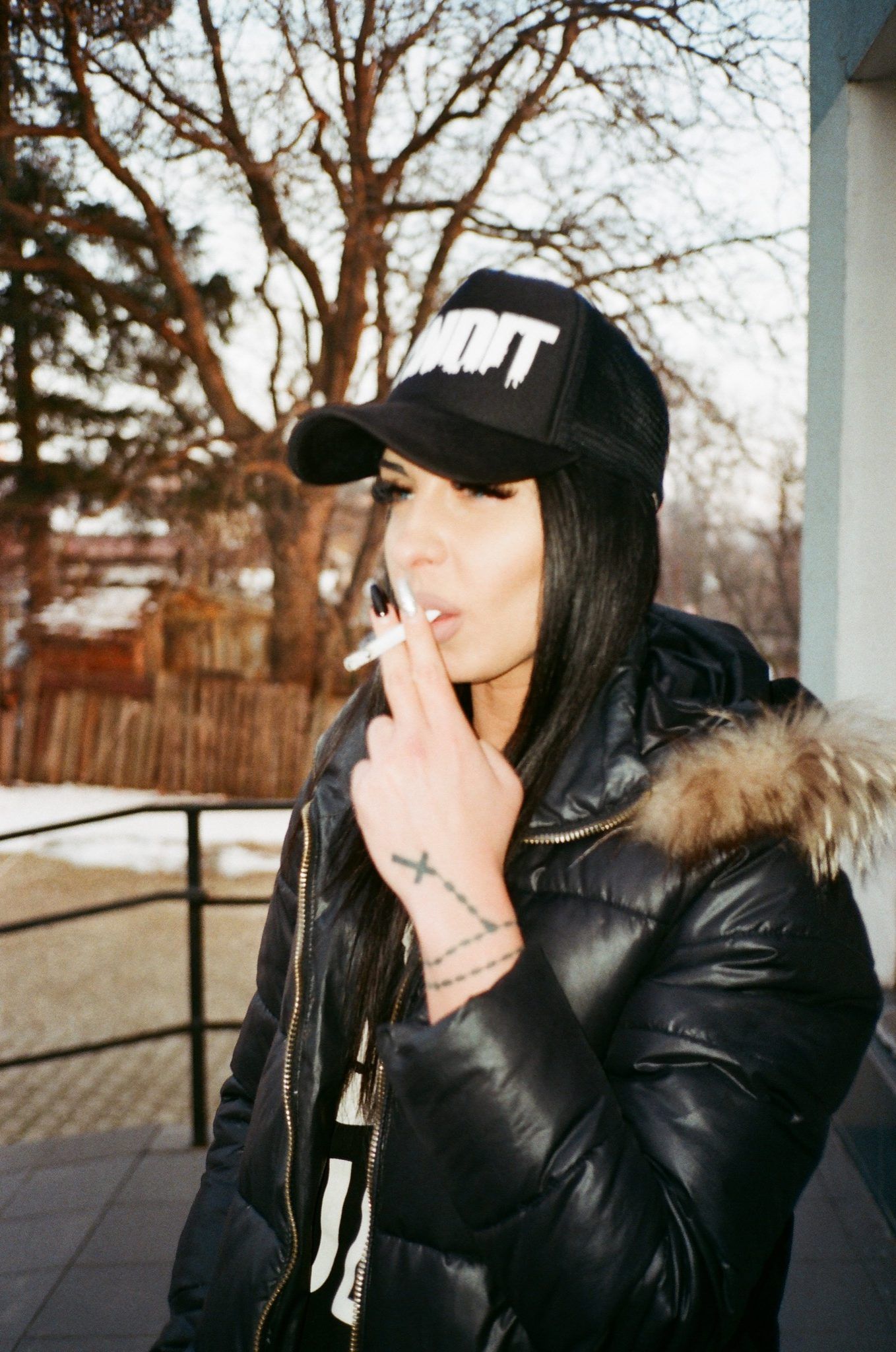
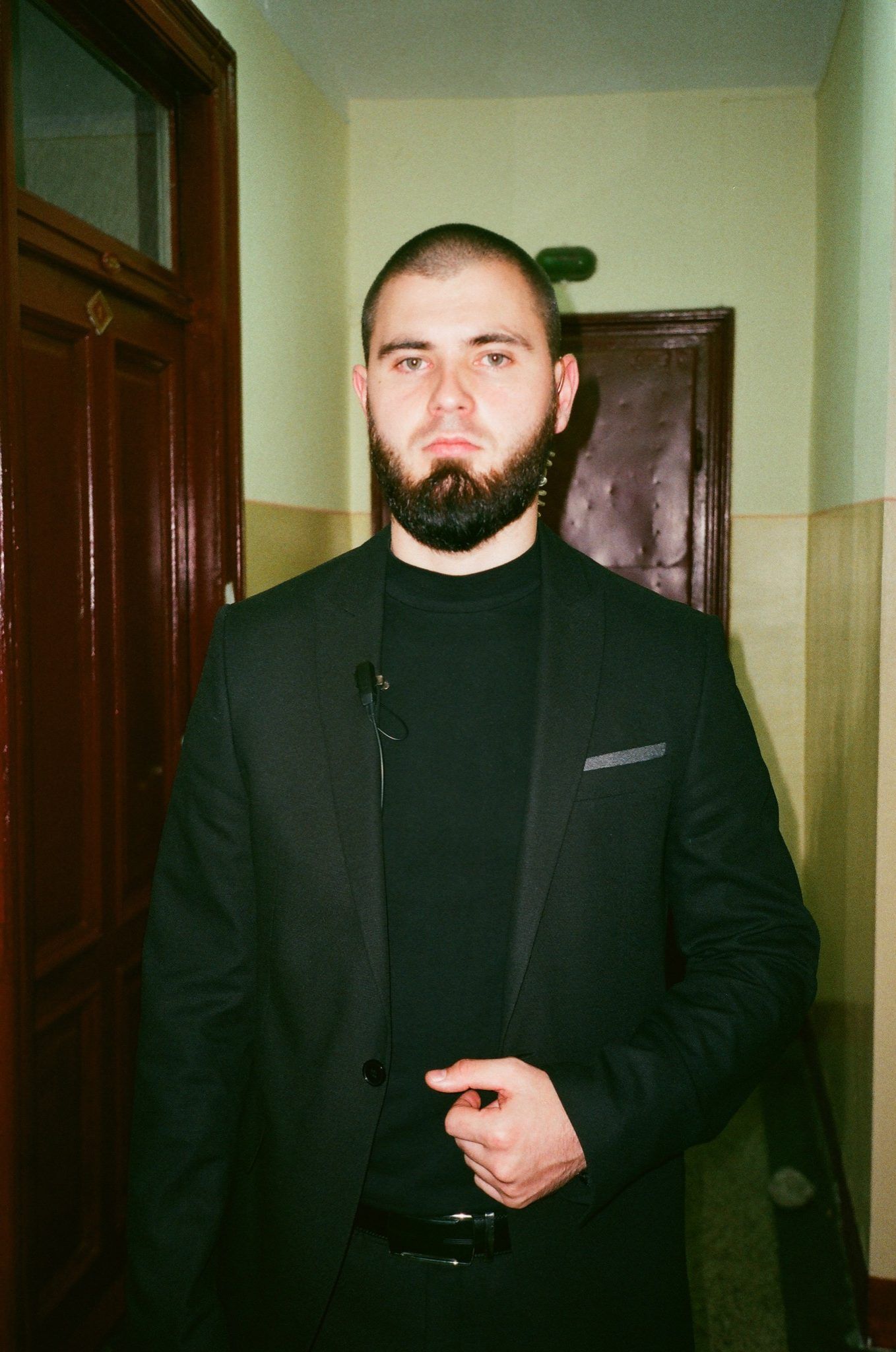
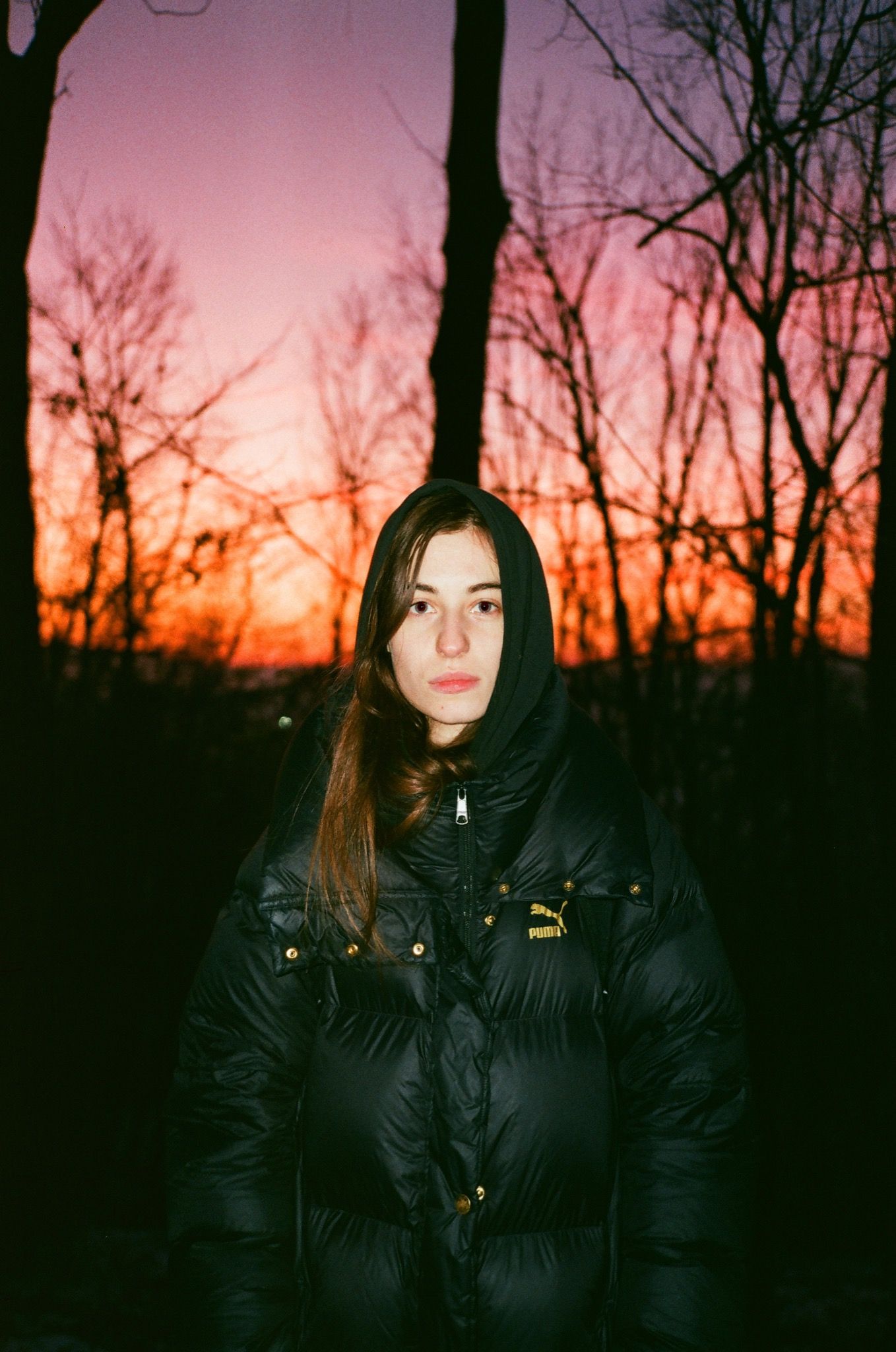
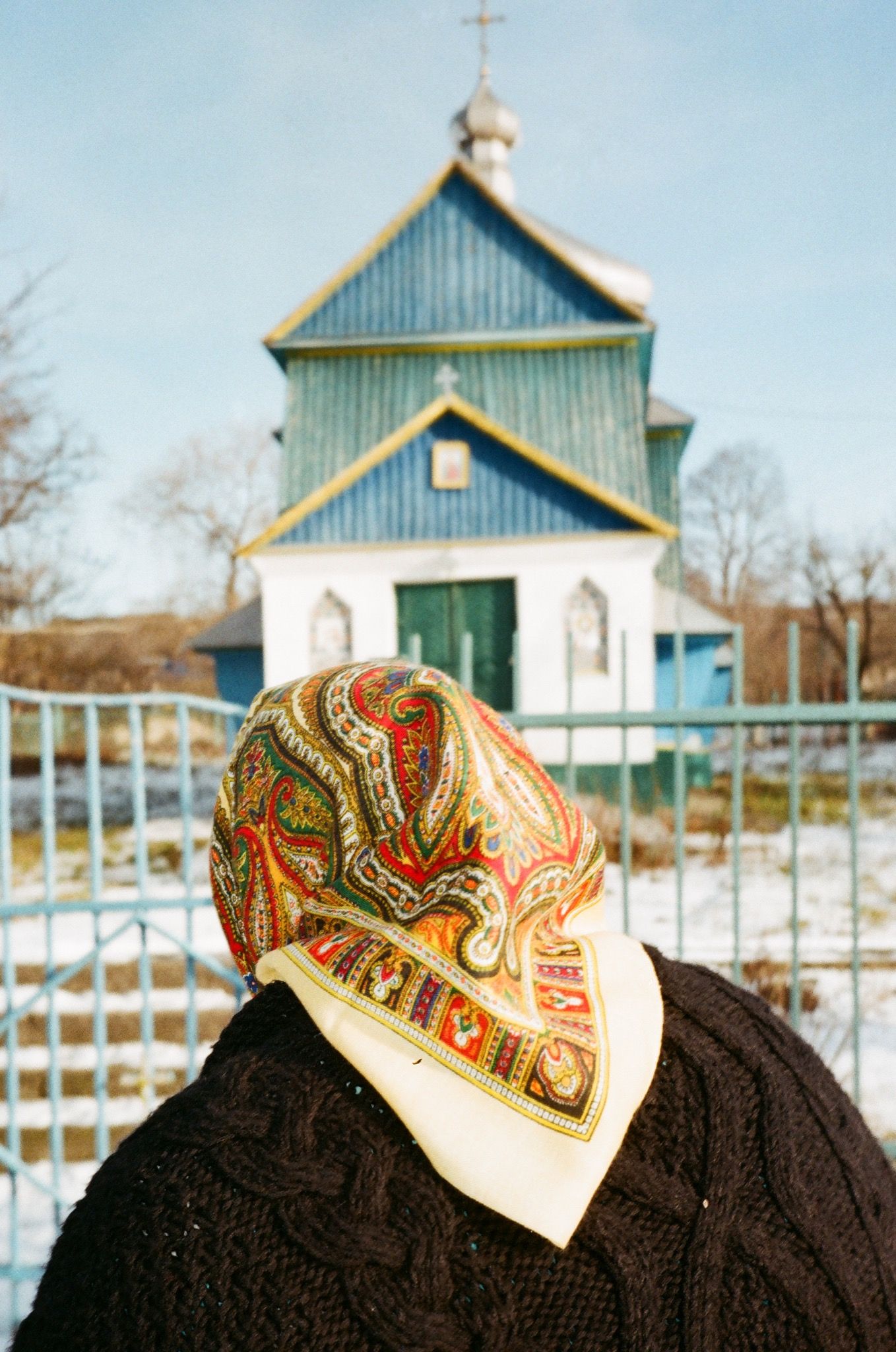
Which aspects of regional multiplicity did you seek to showcase in this project?
Even though my region is very lively due to its geographical situation, to me it always felt like one of those places you would never have a reason to visit. After living in Berlin for a few years it became even more tangible, as now I wouldn’t have a chance to go there often. You know, there is not much attraction in a typical sense, but the spirit of this place and its people— that’s what always calls me back and that’s what I wanted to show, rather than the multiplicity. But I guess you can see it throughout the video anyway, since it’s simply everywhere in the air.
Another important aspect of how the project was developing is that at first we planned to film only people. But I got a note of nostalgia when we went to the place where I was born, and realized that I wanted to show more.
My country has been going through a lot of changes in the last decade, especially after the tragic events of 2014, which have affected many aspects of life there. Many things which surrounded my childhood are getting new shape, some are disappearing. Outside, it reflects on architecture, fashion, and other things. Inside: on the values, behavior, and culture.
I recently ran into this new online character from Russia. His videos translate quite authentic Soviet Union atmospheres of the end of 1980s and beginning of 1990s in a really good way. In one interview, he said that sometimes it takes only to get a bit out of Moscow and you have the right decoration as some of those buildings didn’t change at all. And, you know, it made me think that it wouldn’t be so easy in my region anymore. I think architecture and infrastructure are among those things which are changing a lot now and at quite a high pace. This was an important signal to film it. I wanted to capture the vibe of my childhood, those moments when I would get lost with my friends among faceless buildings in our neighborhood. This makes the project very personal and that’s why some of those scenes from the video might seem to have no sense.
Can you describe some of the ways that the region has changed since your childhood, in terms of the evolution of youth culture and the electronic music scenes?
When I started to play, there were maybe ten or more DJs in town. A few of those guys were a group of friends, sometimes organizing a party a few kilometers outside of the city and playing good music—I really liked their nights. For some reason they stopped at some point, and I guess for around a year nothing was really happening in the city. At that point, I became a resident at a local club and managed to organize my first night there with a few of those guys on the line up. Since it was a really commercial venue, I wanted to avoid regulars and decided to make it on Wednesday. For the same reason, I almost didn’t do any promotion. Just a few printed flyers were handed to the people I wanted to see on the dance floor. You might be surprised, but at some point they had to close the door—it was full as fuck. I still remember that night…
Then there was a new wave of DJs—a lot of DJs, and it was a time of big raves in the city. Some people who had almost nothing to do with the scene quickly picked it up and started making events, bringing a lot of big commercial names almost every month. As a result, things quickly went downhill and the last few big events had major losses. This affected the whole scene, there were no parties organized for a while, and regular residents nights would go more and more without people in the clubs. With time, most of those youth who were going to decent events left the city, often migrating to the EU; some started a family, or simply lost interest. There was a long silence in town. Around a year later I met a group of young guys who were really into electronic music. They managed to establish a small but very nice series of parties. We made good friends and I played for them a few times. Some of their nights were really, really good. Now they curate a hundred-people capacity venue and play very good music there. Considering the size and pace of the wave of underground culture which came to Ukraine recently, I really hope this will help to establish a new movement in my region as well.
How do you hope this body of work is received by foreign audiences?
Honestly I never really have expectations when creating something. And this work wasn’t an exception. Because it’s so personal I admit that it might be hard to understand at times, especially for people who don’t know Eastern Europe and its history well. But I hope the combination of music and visuals can take one into the local vibe of my childhood and teen ages. To some extent, especially in the 90s, it was hard to find love there and all we had was hope.
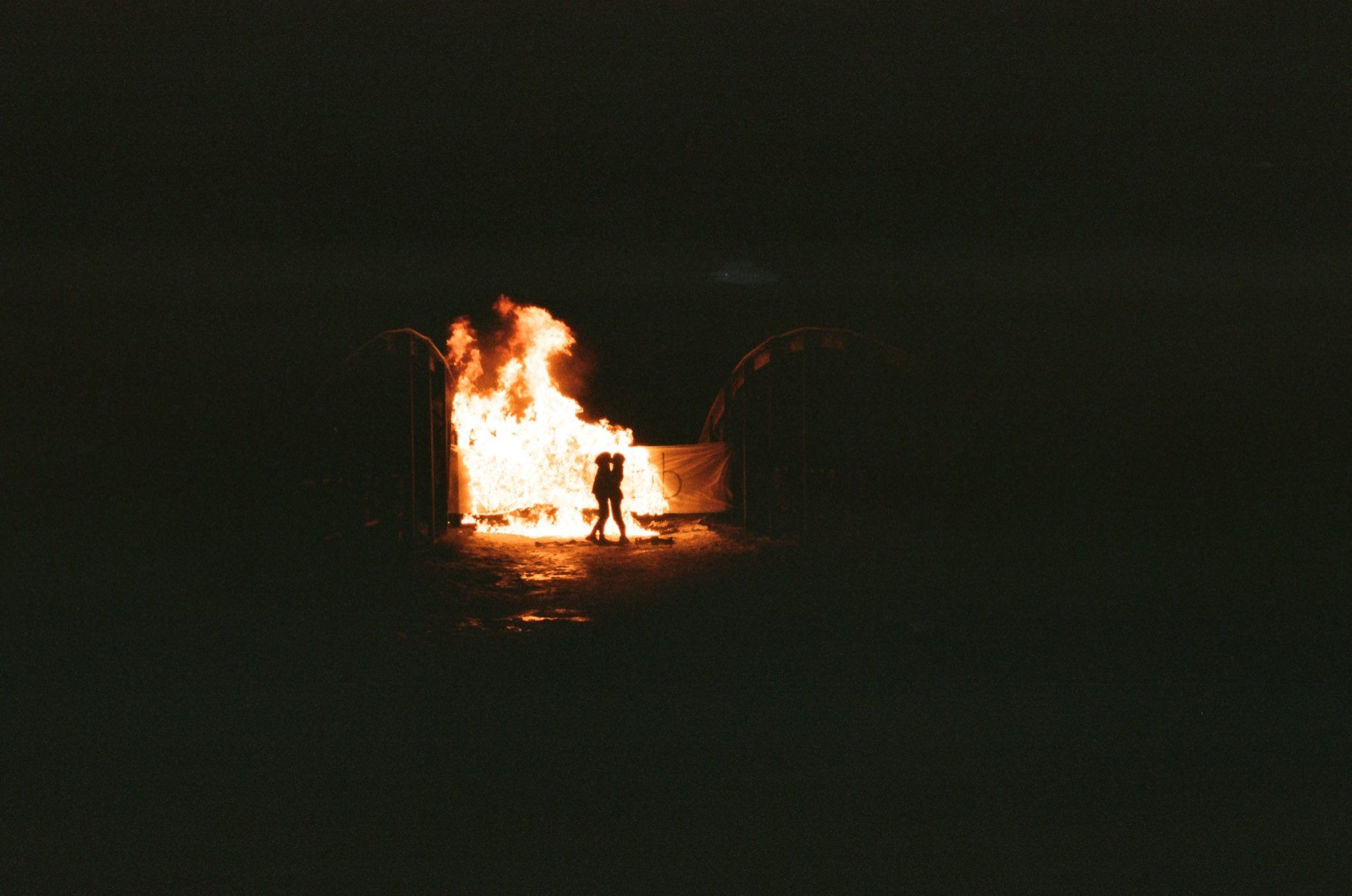
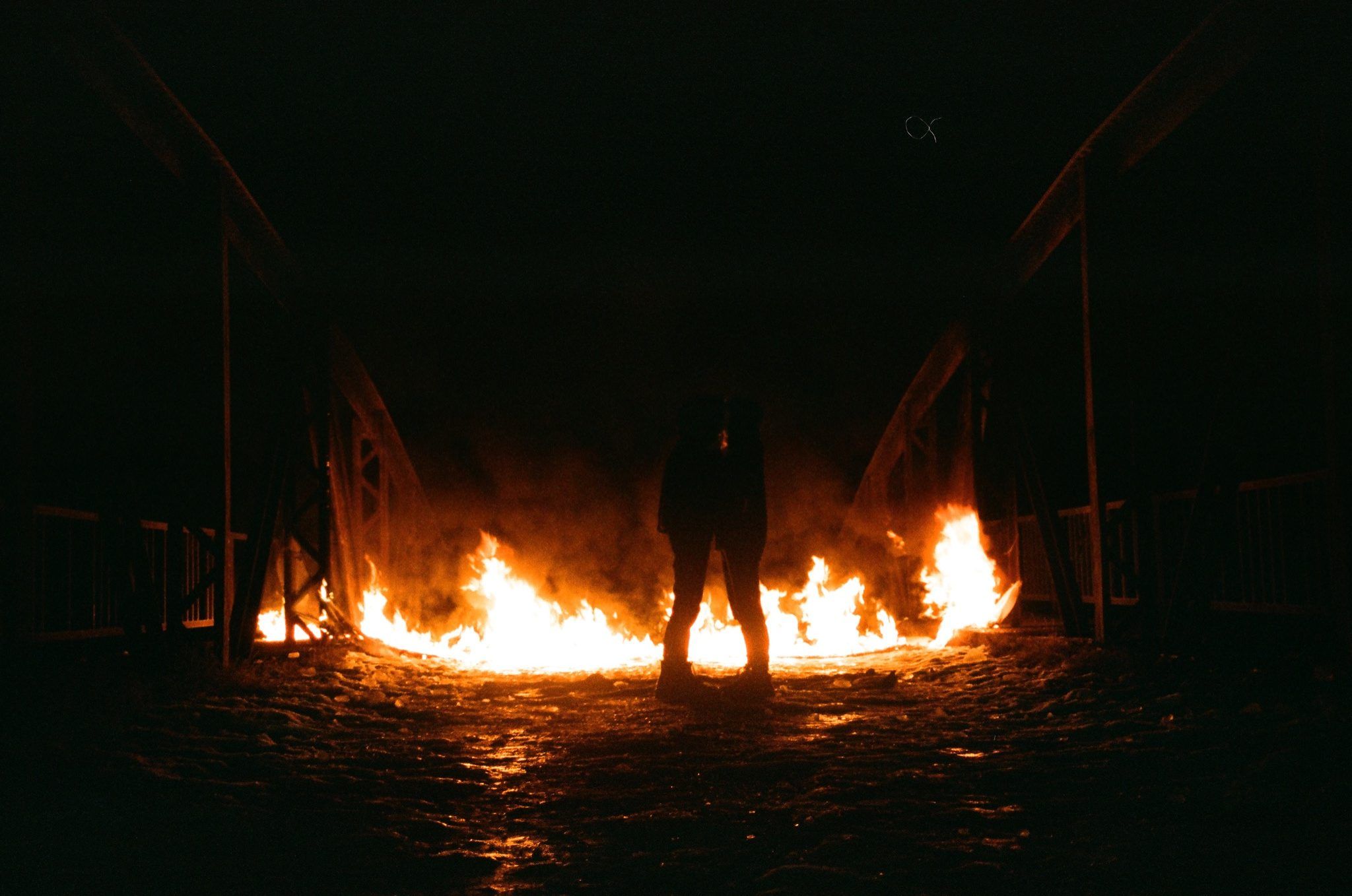
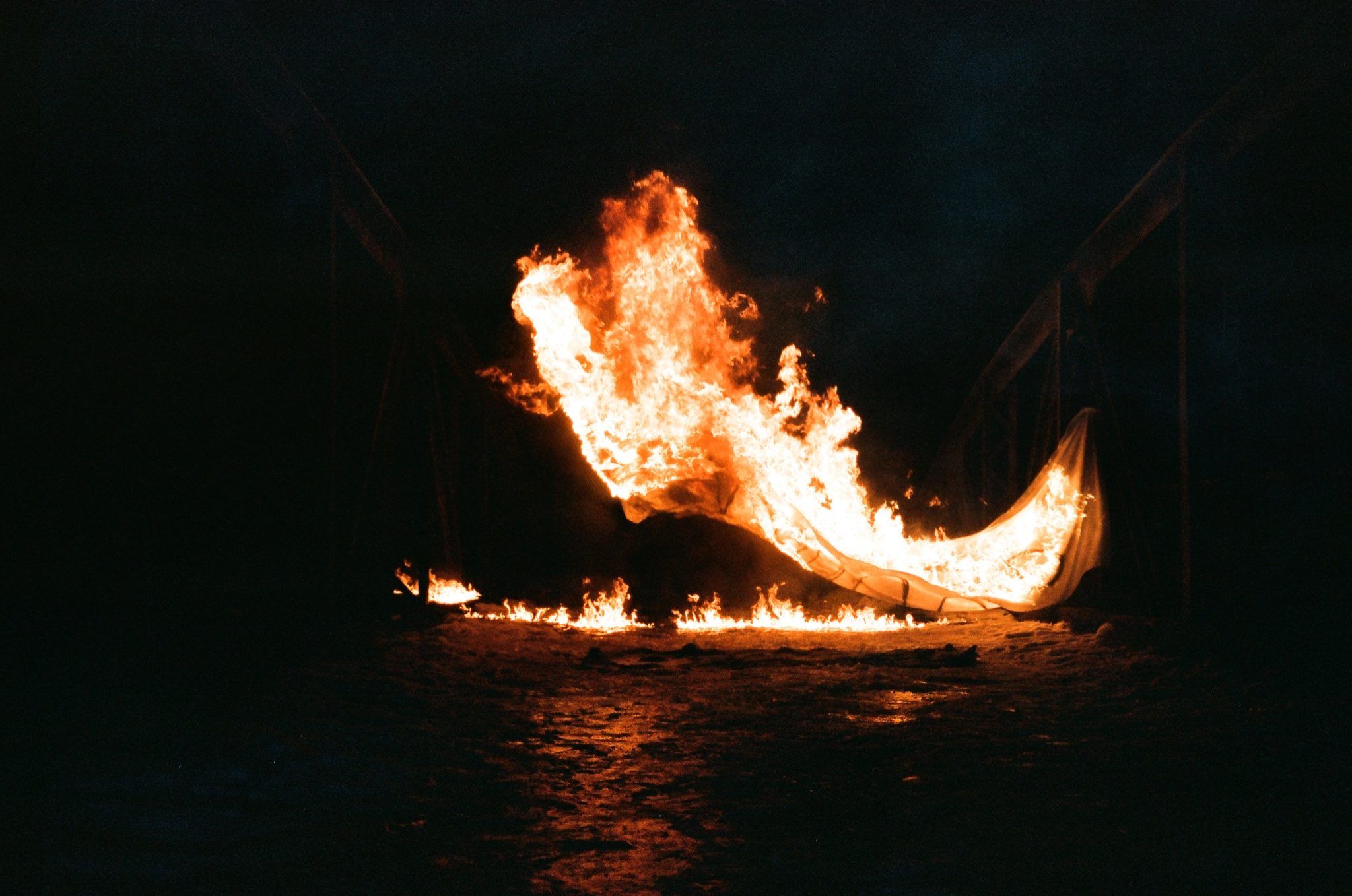
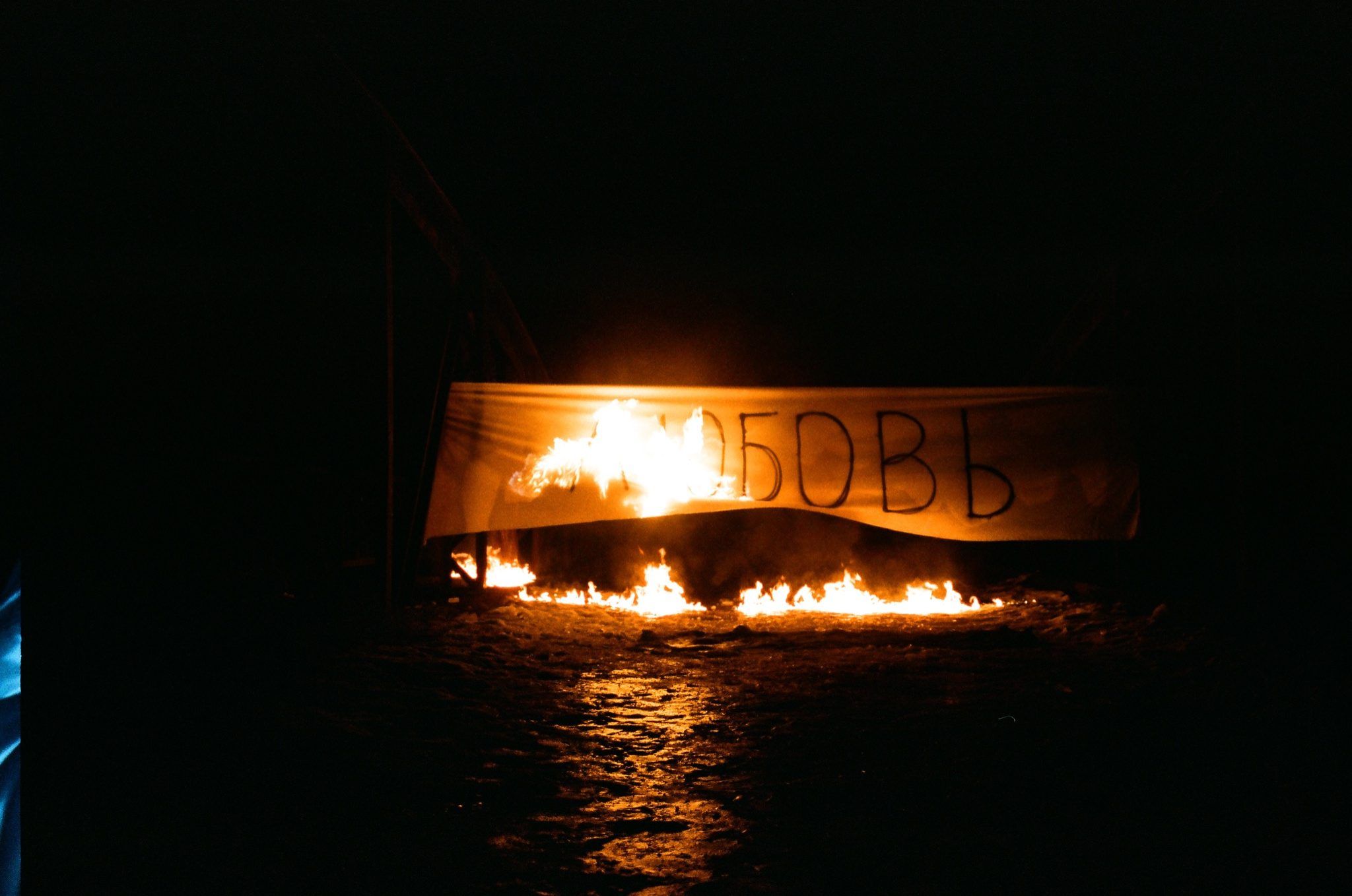
Does electronic music still have the same radical potential to instigate socio-political awareness and youth movements as it once did?
It’s hard to claim that it does 100% because the culture has gone through so much. There often were substitution of concepts and manipulations, especially over the last decade. But I believe it still changes lives all around the globe and leads people to, not only socio-political, but general awareness too. It’s more tangible in the regions where the phenomenon of electronic music has just started to manifest. I think many Post-Soviet countries are among those, including Ukraine.
What do you like and dislike most about the state of electronic music today?
I think it’s going through a phase of big changes at the moment, which I personally really like. The equality issue is being taken into consideration more and more today, and that’s one of the most important things to mention. The situation is improving.
There is also a huge wave of new talent who step into the scene with some much-needed freshness and dare to do things differently. I find it amazing how original some of them are. And I highly respect big labels that don’t hesitate to release and support them.
Ai Weiwei, who has been based in Berlin for several years, recently left the city calling it “self-centered” and “boring.” Others praise it as a haven for creativity and self-expression. What is your perception of Berlin?
We all know that sometimes the whole world can feel unwelcoming. Depending on the situation, of course, but I wouldn’t blame it only on a place. In my language there is an expression; in translation it would go like this, “It isn’t the place that graces the man, but man the place.” No doubt, the surroundings affect us in terms of creativity, but I believe the intention and love—what we put into what we create—is much more crucial. I know that for many people, moving here helped to establish and constantly develop their artistic profiles. But at the same time, it’s not a secret that some people easily get lost here.
It’s almost five years since I moved to Berlin, but my perception of the city hasn’t been formed completely yet. Maybe because, to some degree, I lead quite an isolated lifestyle and sometimes it doesn’t even feel that I live in the city at all, maybe because I spend a lot of time on the road—it’s hard to say for sure.
Credits
- Interview: Irina Baconsky
- Photography: Sergei Veredin
- Photography: Taras Kvasnyak
